What To Know About Medicinal Herbal Decoctions
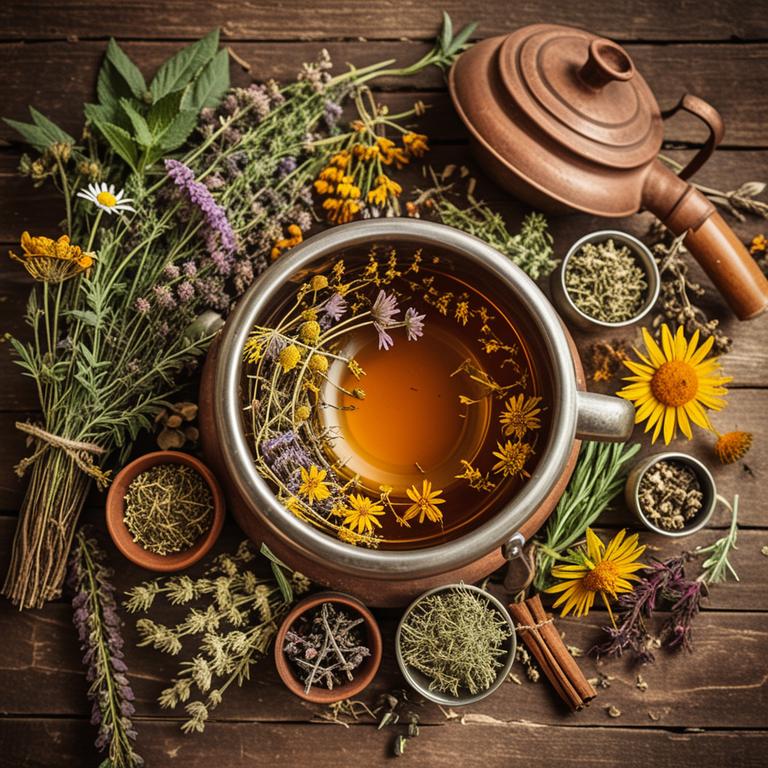
Some of the best medicinal herbal decoctions include echinacea, which is widely used to boost the immune system and reduce the duration of colds.
Turmeric, with its active compound curcumin, is renowned for its anti-inflammatory and antioxidant properties, making it effective for conditions like arthritis and digestive issues. Peppermint decoctions are often used to soothe digestive problems and relieve symptoms of irritable bowel syndrome. Ginger tea is another popular herbal remedy known for its ability to alleviate nausea, inflammation, and muscle pain.
These decoctions, when prepared properly and used consistently, can offer natural relief for a variety of health concerns.
FREE Herb Drying Checklist
How to make sure every batch retains maximum flavor, color, and aroma without the risk of mold or over-drying. Eliminate guesswork and trial-and-error, making herb drying faster, easier, and more efficient every time.
Table of Contents
- 1. Ginger (Zingiber officinale)
- 2. Stinging nettle (Urtica dioica)
- 3. Chaste tree (Vitex agnus-castus)
- 4. Thistle (Silybum marianum)
- 5. Echinacea (Echinacea purpurea)
- 6. Blessed thistle (Cnicus benedictus)
- 7. Salvia (Salvia officinalis)
- 8. Licorice (Glycyrrhiza glabra)
- 9. Dog rose (Rosa canina)
- 10. Turmeric (Curcuma longa)
- 11. Black pepper (Piper nigrum)
- 12. Yarrow (Achillea millefolium)
- 13. St. john's wort (Hypericum perforatum)
- 14. Ceylon cinnamon (Cinnamomum verum)
- 15. English lavender (Lavandula angustifolia)
- 16. Peppermint (Mentha piperita)
- 17. Rosemary (Rosmarinus officinalis)
- 18. White water lily (Nymphaea alba)
- 19. Fennel (Foeniculum vulgare)
- 20. Cumin (Cuminum cyminum)
- 21. Common grape (Vitis vinifera)
- 22. Thyme (Thymus vulgaris)
- 23. Black cumin (Nigella sativa)
- 24. Field horsetail (Equisetum arvense)
- 25. Aloe barbadensis
- 26. Chamomile (Matricaria chamomilla)
- 27. Anise (Pimpinella anisum)
- 28. German chamomile (Chamomilla recutita)
- 29. Ginkgo (Ginkgo biloba)
- 30. Camellia (Camellia sinensis)
- 31. Bloodroot (Sanguinaria canadensis)
- 32. Ceylon cinnamon (Cinnamomum zeylanicum)
- 33. Sanguisorba (Sanguisorba officinalis)
- 34. Wormwood (Artemisia vulgaris)
- 35. Parsley (Petroselinum crispum)
- 36. Tree peony (Paeonia suffruticosa)
- 37. Black elderberry (Sambucus nigra)
- 38. Purple coneflower (Echinacea angustifolia)
- 39. Goldenseal (Hydrastis canadensis)
- 40. Sutherlandia frutescens
- 41. Common mallow (Symphytum officinale)
- 42. Eucalyptus (Eucalyptus globulus)
- 43. Lemon grass (Cymbopogon citratus)
- 44. Greek oregano (Satureja hortensis)
- 45. Plantain (Plantago lanceolata)
- 46. European plum (Prunus domestica)
- 47. Lemon balm (Melissa officinalis)
- 48. Wormwood (Artemisia absinthium)
- 49. Potato (Solanum tuberosum)
- 50. Heartworts (Leonurus cardiaca)
- 51. Chinese peony (Paeonia lactiflora)
- 52. Kudzu (Pueraria lobata)
- 53. Maca (Lepidium meyenii)
- 54. Golden root (Rhodiola rosea)
- 55. Puncture vine (Tribulus terrestris)
- 56. Sacred lotus (Nelumbo nucifera)
- 57. Cyperus rotundus
- 58. Marigold (Calendula officinalis)
- 59. Marshmallow (Althaea officinalis)
- 60. Kava (Piper methysticum)
- 61. Red sage (Salvia miltiorrhiza)
- 62. Catnip (Nepeta cataria)
- 63. Black cohosh (Cimicifuga racemosa)
- 64. Wheat (Triticum aestivum)
- 65. Panax ginseng (Panax ginseng)
- 66. Valerian (Valeriana officinalis)
- 67. Negundo vitex (Vitex negundo)
- 68. Garlic (Allium sativum)
- 69. Sweet wormwood (Artemisia annua)
- 70. Long pepper (Piper longum)
- 71. Moringa tree (Moringa oleifera)
- 72. Ashwagandha (Withania somnifera)
- 73. Mountain arnica (Arnica montana)
- 74. White cedar (Thuja occidentalis)
- 75. Goatweed (Eclipta prostrata)
- 76. Common plantain (Plantago major)
- 77. Tulsi (Ocimum sanctum)
- 78. St. john's wort (Agrimonia eupatoria)
- 79. Buckwheat (Plantago ovata)
- 80. Indian frankincense (Boswellia serrata)
- 81. Lemon grass (Cymbopogon martini)
- 82. Geranium (Pelargonium graveolens)
- 83. Poppy (Papaver rhoeas)
- 84. Oat (Avena sativa)
- 85. Oregano (Origanum vulgare)
- 86. Centella (Centella asiatica)
- 87. Tamarind (Tamarindus indica)
- 88. Indian barberry (Berberis aristata)
- 89. Pogostemon (Pogostemon cablin)
- 90. Smooth sumac (Rhus typhina)
- 91. Blackthorn (Prunus spinosa)
- 92. Coltsfoot (Tussilago farfara)
- 93. Bacopa (Bacopa monnieri)
- 94. Sandalwood (Santalum album)
- 95. Nux vomica (Strychnos nux-vomica)
- 96. Hemp (Cannabis sativa)
- 97. Poison ivy (Rhus toxicodendron)
- 98. Barberry (Berberis vulgaris)
- 99. Pumpkin (Cucurbita pepo)
- 100. Dandelion (Taraxacum officinale)
1. Ginger (Zingiber officinale)

Zingiber officinale herbal decoctions are used to support digestive health by stimulating the production of digestive enzymes and reducing inflammation in the gastrointestinal tract.
They are also commonly utilized to alleviate nausea, particularly during pregnancy, motion sickness, or after surgery, due to their carminative and antiemetic properties. Additionally, these decoctions are valued for their ability to enhance circulation and reduce muscle pain, making them a popular remedy for conditions like arthritis and menstrual cramps. The warming effect of ginger helps to relieve cold-related symptoms such as headaches and respiratory congestion, further expanding its therapeutic applications.
Overall, the versatility and efficacy of zingiber officinale make it a widely respected herbal remedy in both traditional and modern medicine.
2. Stinging nettle (Urtica dioica)

Urtica dioica herbal decoctions are used to support urinary tract health by promoting diuresis and reducing inflammation.
They are also valued for their ability to alleviate symptoms of arthritis and gout due to their anti-inflammatory and analgesic properties. These decoctions can aid in detoxification by supporting liver function and helping to eliminate toxins from the body. Additionally, they are often used in traditional medicine to address skin conditions such as eczema and psoriasis because of their soothing and healing effects.
The combination of these benefits makes urtica dioica a versatile herbal remedy with a wide range of therapeutic applications.
3. Chaste tree (Vitex agnus-castus)

Vitex agnus-castus herbal decoctions are used to support hormonal balance, particularly in women experiencing menstrual irregularities or symptoms related to premenstrual syndrome (PMS).
These decoctions are believed to influence the hypothalamic-pituitary-adrenal (HPA) axis and regulate the production of luteinizing hormone (LH) and follicle-stimulating hormone (FSH), which can help alleviate symptoms such as mood swings, bloating, and cramps. They are also commonly used to address infertility issues by promoting ovulation and improving reproductive health. The herb’s phytoestrogenic and anti-inflammatory properties may contribute to its effectiveness in managing hormonal disorders.
Due to their natural composition and potential therapeutic benefits, vitex agnus-castus decoctions are a popular choice in herbal medicine for women’s health.
4. Thistle (Silybum marianum)

Silybum marianum herbal decoctions are used to support liver health and detoxification due to their rich content of bioactive compounds like silymarin.
These decoctions are often recommended for individuals exposed to environmental toxins or those with liver disorders such as hepatitis or cirrhosis. The anti-inflammatory and antioxidant properties of silymarin help protect liver cells from damage and promote regeneration. Additionally, they may aid in reducing oxidative stress and enhancing the overall function of the hepatic system.
Because of these benefits, silybum marianum decoctions are a popular natural remedy in traditional and complementary medicine.
5. Echinacea (Echinacea purpurea)

Echinacea purpurea herbal decoctions are used to support the immune system and reduce the severity and duration of colds and upper respiratory infections.
These decoctions contain compounds such as alkamides, caffeic acid derivatives, and polysaccharides, which are believed to enhance immune function by stimulating the production of white blood cells. They are also used to alleviate symptoms of inflammation and may help in the treatment of skin conditions like eczema and minor wounds. Due to their anti-inflammatory and antimicrobial properties, echinacea purpurea decoctions are often recommended as a natural remedy for preventing and managing common illnesses.
Their popularity stems from both traditional herbal use and growing scientific interest in their potential health benefits.
6. Blessed thistle (Cnicus benedictus)

Cnicus benedictus herbal decoctions are used to support respiratory health by alleviating symptoms of coughs and bronchial congestion.
They are valued for their expectorant properties, which help loosen mucus and promote easier breathing. In traditional medicine, these decoctions are also believed to have mild antiseptic qualities that can soothe irritated throat tissues. The plant’s active compounds may contribute to reducing inflammation in the airways, making it a popular remedy for seasonal allergies and colds.
Due to their natural composition and historical use, cnicus benedictus decoctions are often sought after for their gentle yet effective approach to respiratory wellness.
7. Salvia (Salvia officinalis)

Salvia officinalis herbal decoctions are used to support digestive health by promoting the secretion of digestive enzymes and alleviating symptoms of indigestion and bloating.
They are also employed to reduce inflammation in the respiratory tract, making them beneficial for conditions like bronchitis and sore throats. Additionally, these decoctions are valued for their calming effects, often used to ease anxiety and improve sleep quality. The presence of antioxidants in salvia officinalis helps combat oxidative stress, contributing to overall immune support.
Due to their versatility and natural properties, salvia officinalis decoctions are widely utilized in traditional and modern herbal medicine for a range of health benefits.
8. Licorice (Glycyrrhiza glabra)

Glycyrrhiza glabra herbal decoctions are used to support respiratory health by soothing inflamed tissues and reducing coughing.
They are commonly employed in traditional medicine to treat conditions such as bronchitis, asthma, and other respiratory infections due to their anti-inflammatory and expectorant properties. Additionally, these decoctions may help in managing digestive issues by protecting the stomach lining and reducing irritation. The compound glycyrrhizin in licorice root has been studied for its potential antiviral effects, making it useful in supporting immune responses.
Overall, the versatility of glycyrrhiza glabra decoctions makes them a valuable remedy in both traditional and modern herbal medicine practices.
9. Dog rose (Rosa canina)

Rosa canina herbal decoctions are used to support immune function and promote overall health due to their rich content of vitamin C and antioxidants.
These decoctions are often employed in traditional medicine to alleviate symptoms of colds, flu, and respiratory infections by boosting the body's natural defenses. Additionally, they are valued for their anti-inflammatory properties, which can help reduce swelling and irritation in the respiratory tract. The use of rosa canina decoctions is also linked to improved skin health and wound healing, thanks to their high concentration of bioflavonoids.
Overall, the combination of nutritional and therapeutic benefits makes rosa canina a popular choice in herbal remedies for maintaining wellness and supporting the immune system.
10. Turmeric (Curcuma longa)

Curcuma longa herbal decoctions are used to support digestive health by stimulating the production of bile and aiding in the digestion of fats.
They are also commonly employed to reduce inflammation due to the presence of curcumin, a compound known for its potent anti-inflammatory properties. These decoctions may help alleviate symptoms of arthritis and other inflammatory conditions by inhibiting inflammatory pathways in the body. Additionally, curcuma longa decoctions are used in traditional medicine to enhance liver function and detoxification processes.
Their versatility and natural origin make them a popular choice for those seeking holistic approaches to health and wellness.
11. Black pepper (Piper nigrum)

Piper nigrum herbal decoctions are used to support digestive health due to their antispasmodic and carminative properties, which help alleviate bloating, gas, and indigestion.
These decoctions are also valued for their ability to reduce inflammation in the gastrointestinal tract, making them beneficial for individuals with conditions like irritable bowel syndrome. In traditional medicine, piper nigrum is often employed to stimulate appetite and improve nutrient absorption, enhancing overall digestive function. Additionally, the decoctions may contribute to the relief of mild respiratory issues by acting as an expectorant, helping to loosen mucus and ease coughing.
Their versatility in both internal and external applications highlights why piper nigrum remains a significant herb in herbal medicine practices worldwide.
12. Yarrow (Achillea millefolium)

Achillea millefolium herbal decoctions are used to support digestive health by reducing inflammation and soothing the gastrointestinal tract.
They are also valued for their antispasmodic properties, which can help alleviate symptoms of conditions like irritable bowel syndrome. Additionally, these decoctions are believed to have mild sedative effects, making them useful for calming the nervous system and improving sleep quality. The presence of compounds like achilleine and sesquiterpene lactones contributes to their therapeutic effects.
Overall, achillea millefolium decoctions are a traditional remedy that continues to be used for a range of health benefits due to their natural and holistic properties.
13. St. john's wort (Hypericum perforatum)

Hypericum perforatum herbal decoctions are used to support mental health and alleviate symptoms of mild to moderate depression.
They contain compounds like hypericin and hyperforin, which are believed to influence neurotransmitter levels in the brain, potentially enhancing mood and reducing anxiety. These decoctions are also traditionally used to treat wounds and skin conditions due to their antimicrobial and anti-inflammatory properties. In addition, they may help with seasonal affective disorder by regulating circadian rhythms and serotonin levels.
Because of their natural composition and relatively few side effects compared to pharmaceutical antidepressants, hypericum perforatum decoctions are often considered a complementary therapy in holistic and integrative medicine.
14. Ceylon cinnamon (Cinnamomum verum)

Cinnamomum verum herbal decoctions are used to promote digestive health by stimulating the production of digestive enzymes and reducing gastrointestinal discomfort.
They are also commonly utilized to support cardiovascular health due to their ability to help regulate blood pressure and improve circulation. Additionally, these decoctions are valued for their warming properties, which can help alleviate symptoms of colds, flu, and respiratory infections. The anti-inflammatory and antioxidant properties of cinnamomum verum make it beneficial for reducing inflammation and supporting immune function.
Overall, the versatility of cinnamomum verum herbal decoctions makes them a valuable remedy in traditional and modern herbal medicine.
15. English lavender (Lavandula angustifolia)

Lavandula angustifolia herbal decoctions are used to promote relaxation and alleviate symptoms of anxiety and stress due to their calming properties.
These decoctions are also employed in skincare to treat minor burns, insect bites, and skin irritations because of their antiseptic and anti-inflammatory effects. The essential oils extracted from the decoctions are commonly incorporated into aromatherapy to enhance mood and improve sleep quality. Additionally, they are used in traditional medicine to support digestive health by soothing gastrointestinal discomfort.
Their versatility and therapeutic benefits make lavandula angustifolia a valuable herb in both holistic and conventional healing practices.
16. Peppermint (Mentha piperita)

Mentha piperita herbal decoctions are used to relieve digestive issues such as indigestion, bloating, and nausea due to their carminative and antispasmodic properties.
These decoctions can also help in reducing inflammation and soothing the mucous membranes of the respiratory tract, making them beneficial for treating coughs and sore throats. Additionally, mentha piperita is known to stimulate mental alertness and improve concentration, making it a popular choice for enhancing cognitive function. Its refreshing aroma also makes it a common ingredient in aromatherapy and topical applications for relaxation and stress relief.
Overall, the versatility of mentha piperita herbal decoctions makes them a valuable natural remedy for a variety of health concerns.
17. Rosemary (Rosmarinus officinalis)

Rosmarinus officinalis herbal decoctions are used to promote mental clarity and enhance cognitive function due to their high concentration of antioxidants and anti-inflammatory compounds.
These decoctions are also valued for their ability to support digestion by stimulating the secretion of digestive enzymes and reducing bloating. In traditional medicine, they have been utilized to alleviate symptoms of depression and anxiety, thanks to their calming effects on the nervous system. Additionally, the essential oils in these decoctions are known to have antimicrobial properties, making them useful in treating minor skin infections and respiratory issues.
Overall, the versatility of rosmarinus officinalis herbal decoctions makes them a valuable natural remedy in both traditional and modern health practices.
18. White water lily (Nymphaea alba)
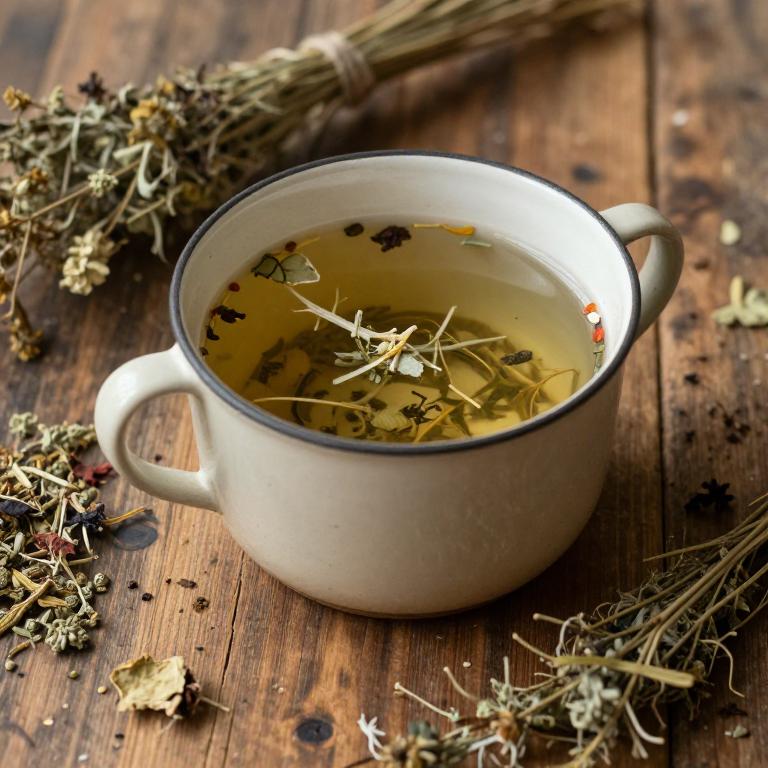
Nymphaea alba herbal decoctions are used to promote relaxation and alleviate symptoms of anxiety and insomnia due to their calming properties.
These decoctions contain compounds that may help regulate the nervous system, reducing stress and promoting a sense of well-being. They are also traditionally used to support digestive health by soothing the gastrointestinal tract and reducing inflammation. The mild sedative effects of nymphaea alba make it a popular choice for herbal remedies in traditional medicine systems.
Overall, the use of nymphaea alba decoctions is valued for their natural ability to enhance mental clarity and improve sleep quality.
19. Fennel (Foeniculum vulgare)

Foeniculum vulgare herbal decoctions are used to support digestive health by stimulating the production of digestive juices and relieving symptoms of indigestion, bloating, and flatulence.
They are also commonly employed to ease respiratory conditions such as coughs and bronchitis due to their expectorant properties that help loosen mucus in the airways. Additionally, these decoctions may aid in reducing stress and anxiety by promoting relaxation and calming the nervous system. The aromatic compounds in fennel contribute to its carminative effects, making it beneficial for soothing gastrointestinal discomfort.
Overall, foeniculum vulgare herbal decoctions are valued for their versatile therapeutic applications in both digestive and respiratory wellness.
20. Cumin (Cuminum cyminum)
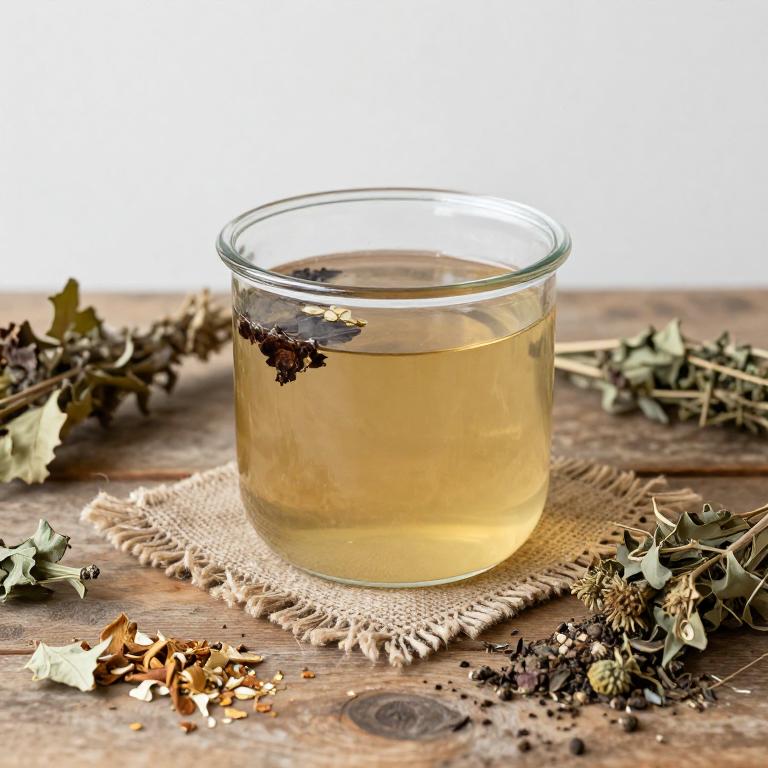
Cuminum cyminum herbal decoctions are used to support digestive health by stimulating the secretion of digestive enzymes and improving gut motility.
They are also valued for their ability to alleviate symptoms of bloating, gas, and indigestion due to their carminative properties. In traditional medicine, these decoctions are often employed to treat respiratory conditions such as coughs and colds because of their expectorant and anti-inflammatory effects. Additionally, cuminum cyminum is believed to have antioxidant and antimicrobial properties that contribute to its use in promoting overall immune function.
These benefits make cuminum cyminum a versatile and widely respected herbal remedy across various cultures and medical traditions.
21. Common grape (Vitis vinifera)
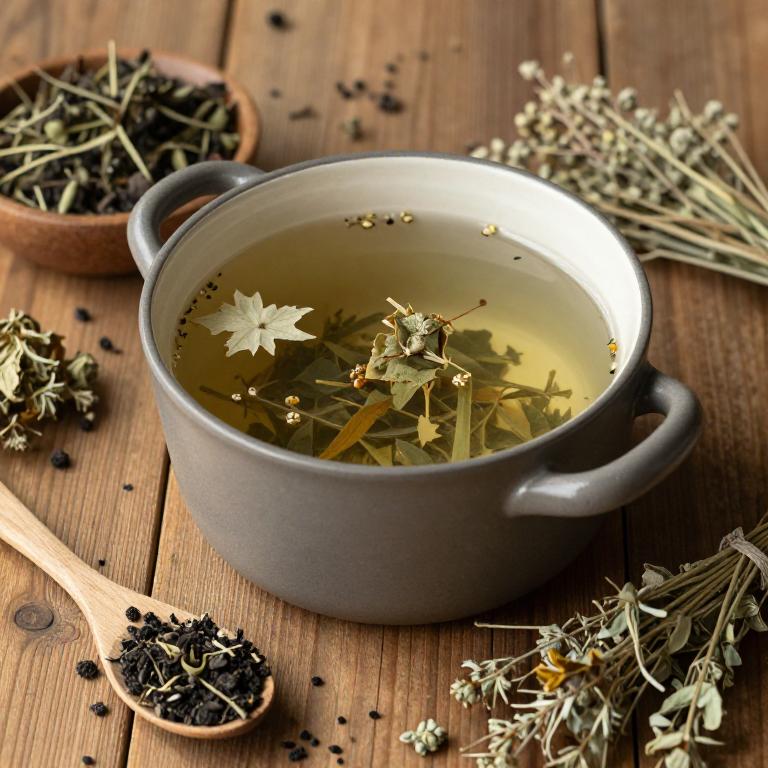
Vitis vinifera herbal decoctions are used to support cardiovascular health due to their rich content of polyphenols, particularly resveratrol, which has been shown to improve blood vessel function and reduce oxidative stress.
These decoctions are also utilized in traditional medicine to promote liver health, as they may aid in detoxification processes and protect against liver damage. Additionally, they are employed to enhance cognitive function and memory, as some studies suggest that the antioxidants in vitis vinifera may help protect brain cells from damage. The anti-inflammatory properties of these decoctions make them beneficial in managing conditions such as arthritis and other inflammatory disorders.
Overall, the diverse bioactive compounds in vitis vinifera herbal decoctions contribute to their wide range of therapeutic applications.
22. Thyme (Thymus vulgaris)

Thymus vulgaris herbal decoctions are used to support respiratory health by alleviating symptoms of coughs, colds, and bronchitis due to their expectorant and antimicrobial properties.
These decoctions also help in boosting the immune system, as thymus vulgaris contains compounds that stimulate the production of white blood cells. Additionally, they are often used in traditional medicine to treat digestive issues such as indigestion and stomach discomfort because of their carminative effects. The essential oils in thymus vulgaris have antiseptic qualities that make them useful in treating minor skin infections and wounds.
Overall, the versatility of thymus vulgaris herbal decoctions makes them a valuable remedy in both traditional and modern herbal medicine practices.
23. Black cumin (Nigella sativa)
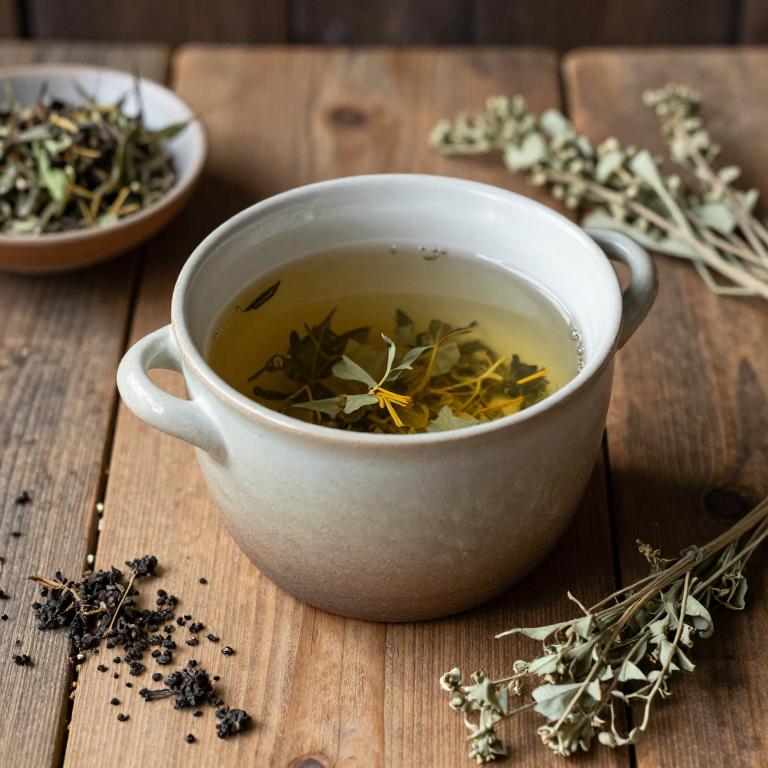
Nigella sativa herbal decoctions are used to support digestive health by stimulating the production of digestive enzymes and improving gut motility.
They are also employed in traditional medicine to alleviate symptoms of respiratory conditions such as asthma and cough due to their anti-inflammatory and bronchodilatory properties. These decoctions are known to boost the immune system because of their high content of thymoquinone, a compound with potent antioxidant and immunomodulatory effects. Additionally, they are used to manage skin conditions like eczema and psoriasis due to their antimicrobial and anti-inflammatory actions.
Overall, the versatility of nigella sativa herbal decoctions makes them a valuable remedy in both traditional and complementary medicine practices.
24. Field horsetail (Equisetum arvense)

Equisetum arvense herbal decoctions are used to support kidney health and aid in the treatment of urinary tract infections due to their diuretic properties.
These decoctions are also valued for their ability to detoxify the body and promote the elimination of toxins through urine. In traditional medicine, they have been employed to address conditions such as gout and rheumatism by helping to reduce uric acid levels and inflammation. The presence of silicic acid in equisetum arvense is believed to contribute to its effectiveness in strengthening connective tissues and bones.
Overall, the use of these decoctions is rooted in their historical efficacy and the wide range of health benefits they offer when properly prepared and administered.
25. Aloe barbadensis

Aloe barbadensis herbal decoctions are used to promote skin health and aid in the healing of burns, cuts, and skin irritations due to their anti-inflammatory and antimicrobial properties.
These decoctions contain compounds like aloin and aloe-emodin, which help reduce inflammation and soothe irritated skin. They are also commonly used to support digestive health by alleviating symptoms of indigestion, constipation, and other gastrointestinal discomforts. The soothing effects of aloe barbadensis make it a popular ingredient in natural remedies for both topical and internal use.
Its versatility and long history of traditional use contribute to its continued popularity in herbal medicine.
26. Chamomile (Matricaria chamomilla)
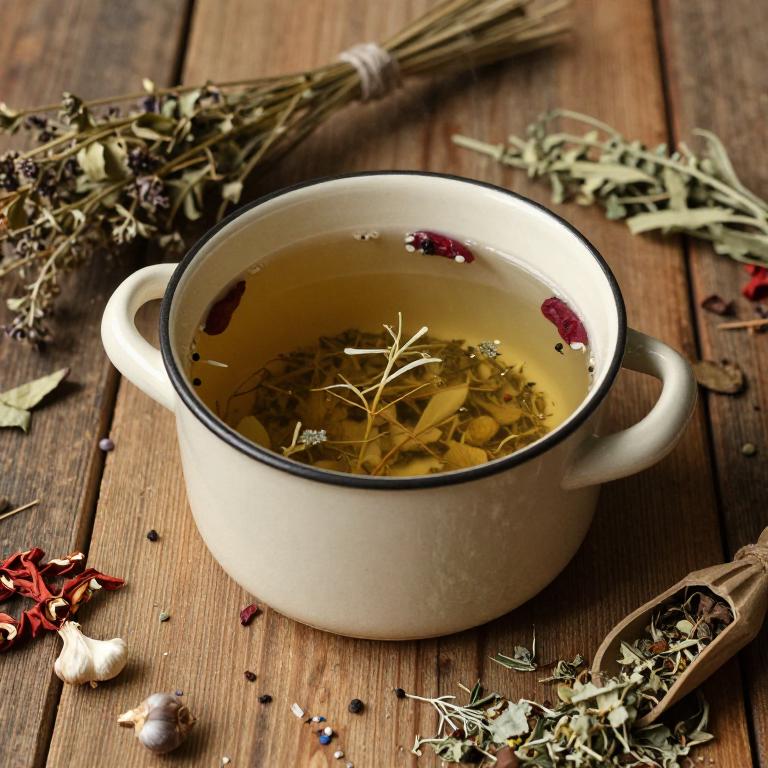
Matricaria chamomilla herbal decoctions are used to promote relaxation and alleviate symptoms of anxiety and insomnia due to their calming properties.
These decoctions contain compounds like apigenin, which interact with brain receptors to reduce stress and induce a sense of well-being. They are also commonly used to soothe digestive issues such as bloating, gas, and mild gastrointestinal discomfort. The anti-inflammatory and antispasmodic effects of chamomilla make it beneficial for skin conditions and minor wounds.
Overall, matricaria chamomilla herbal decoctions are valued for their versatility in supporting both mental and physical health.
27. Anise (Pimpinella anisum)
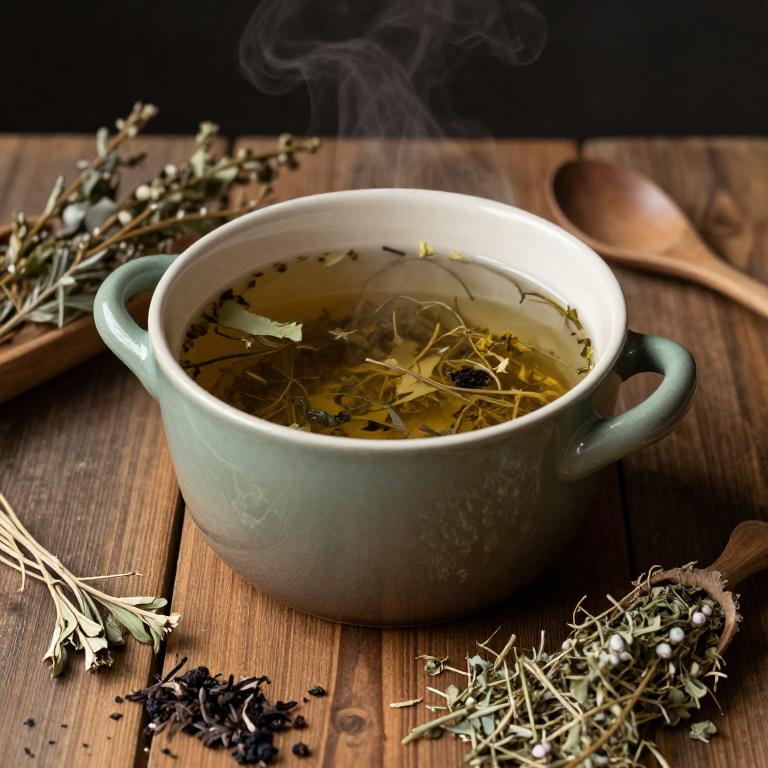
Pimpinella anisum herbal decoctions are used to support respiratory health by alleviating symptoms of coughing, bronchitis, and asthma due to their expectorant and antispasmodic properties.
These decoctions are also valued for their ability to soothe digestive discomfort, such as bloating, gas, and indigestion, thanks to the presence of essential oils and phytochemicals. Additionally, they are often used in traditional medicine to ease menstrual cramps and reduce nausea, making them a versatile remedy for various ailments. The aromatic compounds in anise decoctions can also promote relaxation and improve mood, contributing to overall well-being.
Because of their mild yet effective nature, pimpinella anisum herbal decoctions are a popular choice for natural remedies in both culinary and therapeutic contexts.
28. German chamomile (Chamomilla recutita)

Chamomilla recutita herbal decoctions are used to soothe digestive discomfort and reduce inflammation due to their mild sedative and anti-inflammatory properties.
These decoctions are commonly employed to alleviate symptoms of indigestion, bloating, and stomach cramps, making them a popular remedy in natural medicine. They are also used to promote relaxation and improve sleep quality, as they contain compounds that can calm the nervous system. Additionally, chamomilla recutita decoctions are beneficial for skin conditions such as eczema and acne due to their antimicrobial and soothing effects.
Overall, their versatility and gentle nature make them a valuable herbal remedy for a range of health concerns.
29. Ginkgo (Ginkgo biloba)
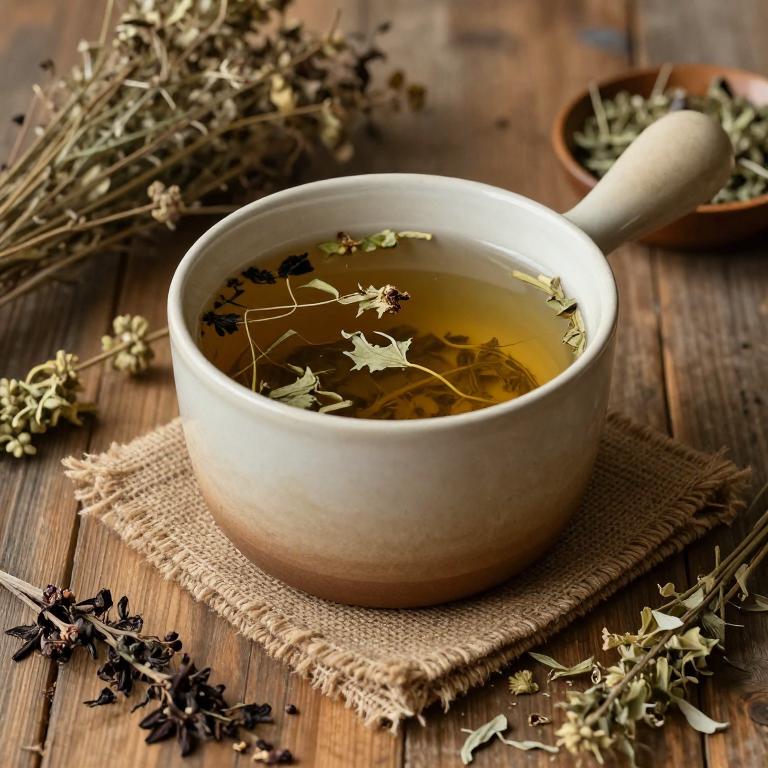
Ginkgo biloba herbal decoctions are used to enhance cognitive function and improve memory, particularly in individuals experiencing age-related decline.
These decoctions are believed to promote blood circulation and increase oxygen flow to the brain, which can support mental clarity and focus. They are also commonly used to alleviate symptoms of anxiety and stress due to their calming effects on the nervous system. Additionally, ginkgo biloba decoctions may help with peripheral circulation, making them beneficial for people with conditions like intermittent claudication.
The active compounds in ginkgo biloba, such as flavonoids and terpenoids, are thought to contribute to its wide range of therapeutic benefits.
30. Camellia (Camellia sinensis)
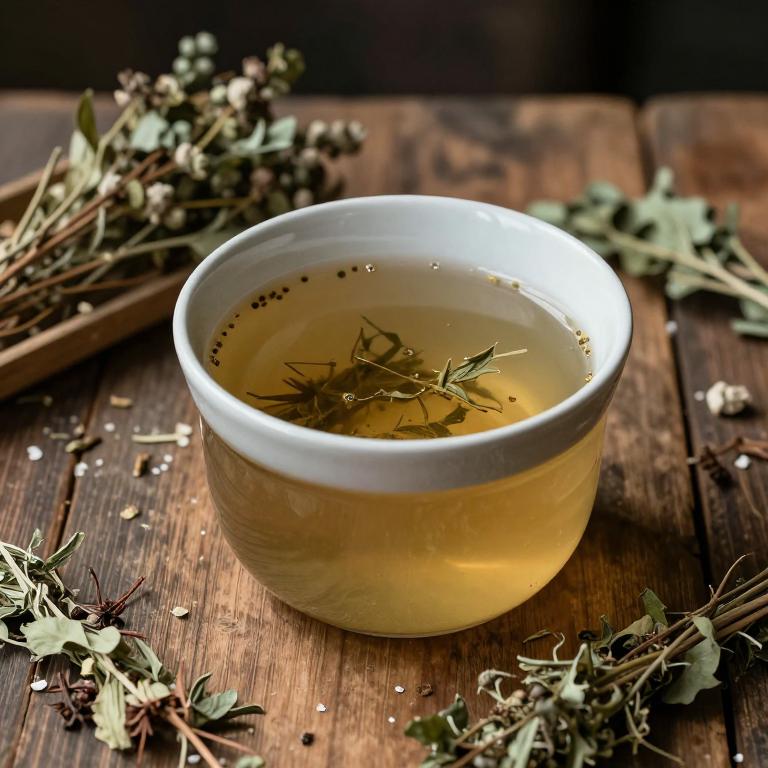
Camellia sinensis herbal decoctions are used to promote relaxation and enhance mental clarity by stimulating the central nervous system through the presence of caffeine and other bioactive compounds.
These decoctions are also valued for their ability to improve cardiovascular health by increasing blood flow and lowering cholesterol levels. In traditional medicine, they are employed to aid digestion and reduce fatigue due to their rich content of antioxidants and essential nutrients. Additionally, camellia sinensis decoctions are used to support weight management by boosting metabolism and increasing energy expenditure.
Overall, their wide range of health benefits makes them a popular choice for both therapeutic and daily consumption purposes.
31. Bloodroot (Sanguinaria canadensis)
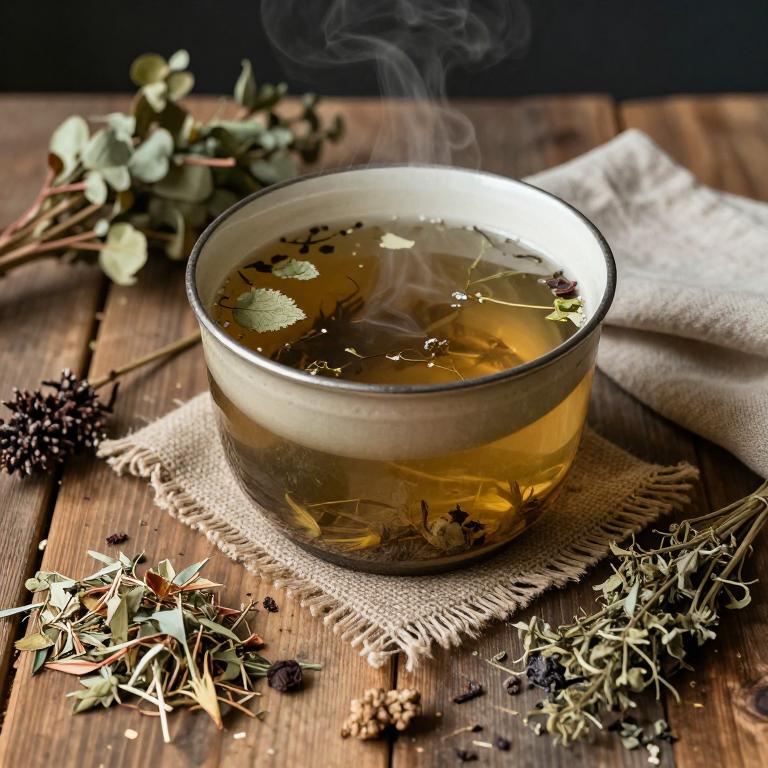
Sanguinaria canadensis herbal decoctions are used to treat various ailments due to their potent medicinal properties.
These decoctions have historically been employed in traditional medicine to address respiratory conditions such as coughs and bronchitis, thanks to their expectorant and anti-inflammatory effects. They are also valued for their ability to alleviate skin disorders, including eczema and psoriasis, due to their antimicrobial and astringent qualities. The root of the plant contains alkaloids that contribute to its analgesic and antispasmodic properties, making it useful for digestive issues and pain relief.
However, it is important to note that sanguinaria canadensis is toxic in high doses, and its use should be carefully monitored under professional guidance.
32. Ceylon cinnamon (Cinnamomum zeylanicum)
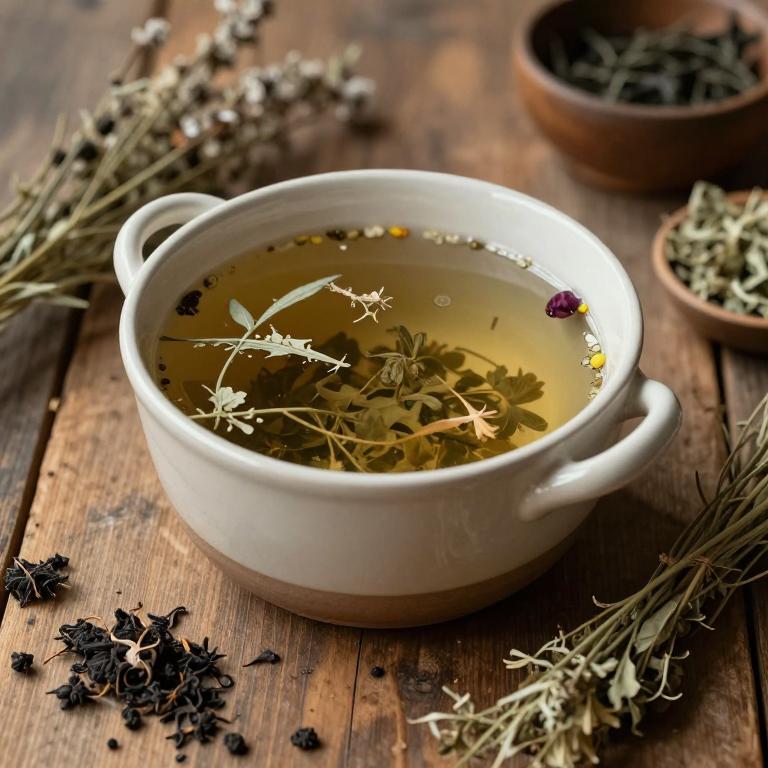
Cinnamomum zeylanicum herbal decoctions are used to promote digestive health by stimulating the production of digestive enzymes and reducing bloating.
They are also known to help regulate blood sugar levels, making them beneficial for individuals with diabetes or those at risk of developing the condition. Additionally, these decoctions have antimicrobial properties that can support immune function and help combat infections. The warming properties of cinnamon make it effective in alleviating symptoms of colds and respiratory issues.
Overall, the versatile benefits of cinnamomum zeylanicum decoctions make them a valuable remedy in traditional and modern herbal medicine.
33. Sanguisorba (Sanguisorba officinalis)
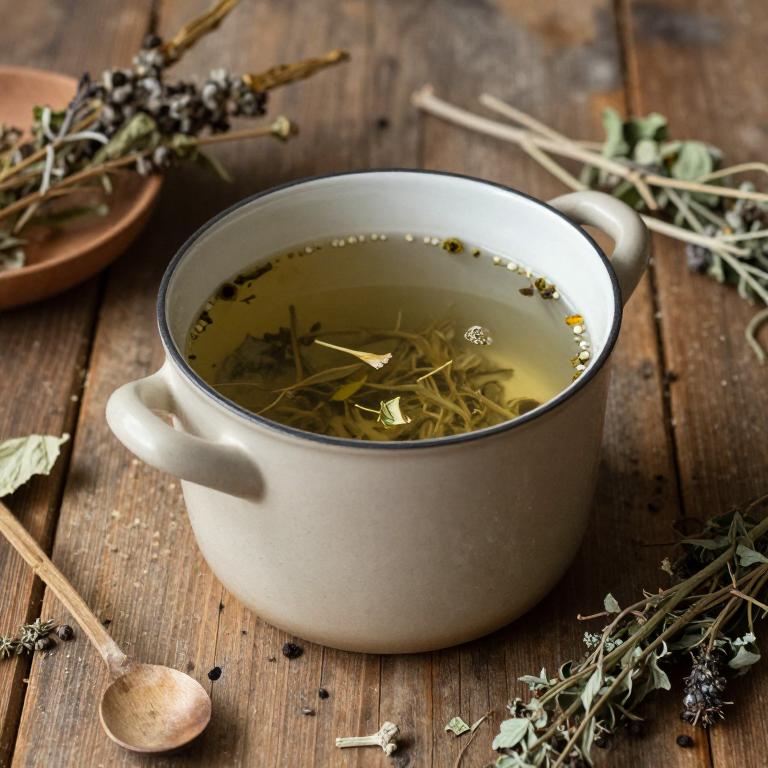
Sanguisorba officinalis herbal decoctions are used to support digestive health by promoting the secretion of digestive enzymes and reducing bloating.
They are also valued for their diuretic properties, which help in eliminating excess fluids from the body and supporting kidney function. Additionally, these decoctions are known to have mild laxative effects, making them useful in treating constipation. The plant's anti-inflammatory compounds may also contribute to its use in managing skin conditions and reducing internal inflammation.
Overall, the therapeutic benefits of sanguisorba officinalis make it a valuable herb in traditional and modern herbal medicine.
34. Wormwood (Artemisia vulgaris)
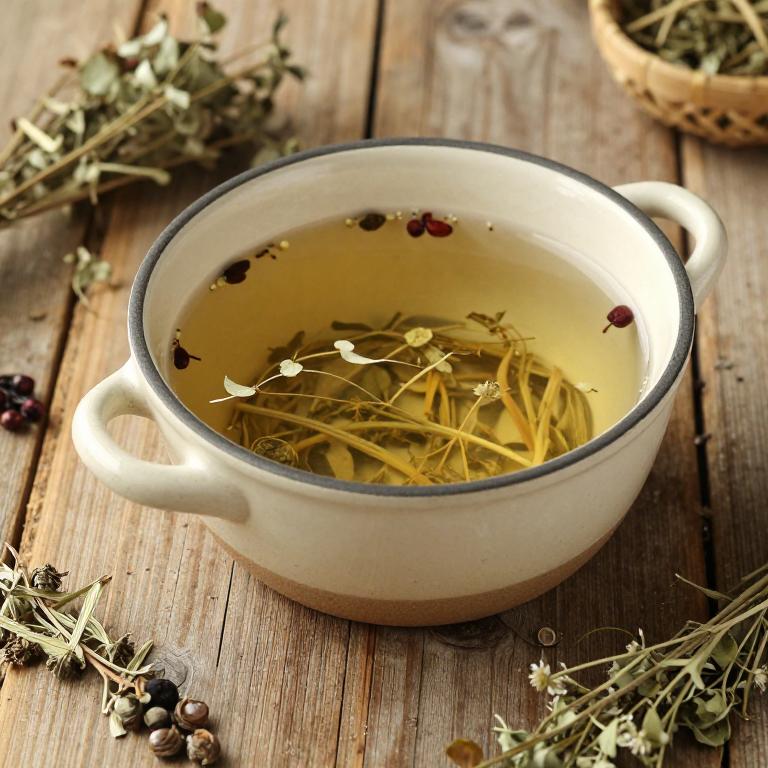
Artemisia vulgaris herbal decoctions are used to support digestive health by stimulating appetite and aiding in the treatment of digestive disorders such as indigestion and flatulence.
They are also employed in traditional medicine to manage fever and malaria due to their antipyretic and antimalarial properties. The decoctions are valued for their ability to promote liver function and detoxification, making them useful in treating conditions like jaundice and liver inflammation. Additionally, they have been used historically to treat parasitic infections and to act as a natural remedy for respiratory issues such as coughs and colds.
These uses are attributed to the presence of bioactive compounds like thujone and flavonoids, which contribute to their therapeutic effects.
35. Parsley (Petroselinum crispum)
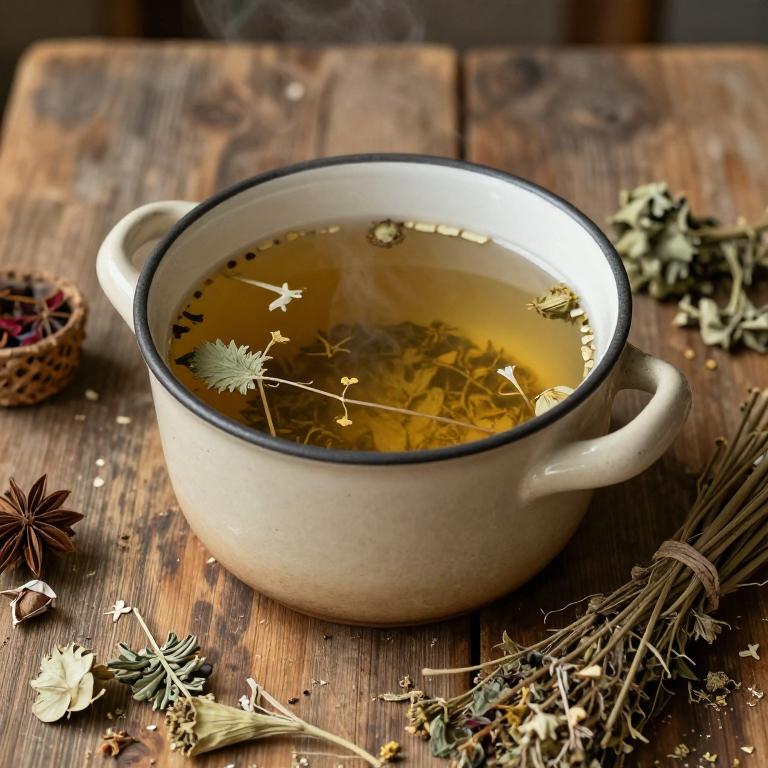
Petroselinum crispum herbal decoctions are used to support digestive health by stimulating the production of digestive enzymes and promoting the secretion of bile.
They are also valued for their ability to alleviate respiratory conditions such as bronchitis and coughs due to their expectorant properties. The decoctions are often used in traditional medicine to reduce inflammation and ease symptoms of urinary tract infections. Additionally, they are believed to have mild sedative effects that can help with stress and anxiety.
These benefits are attributed to the presence of compounds like apiol and limonene, which possess antimicrobial and anti-inflammatory properties.
36. Tree peony (Paeonia suffruticosa)
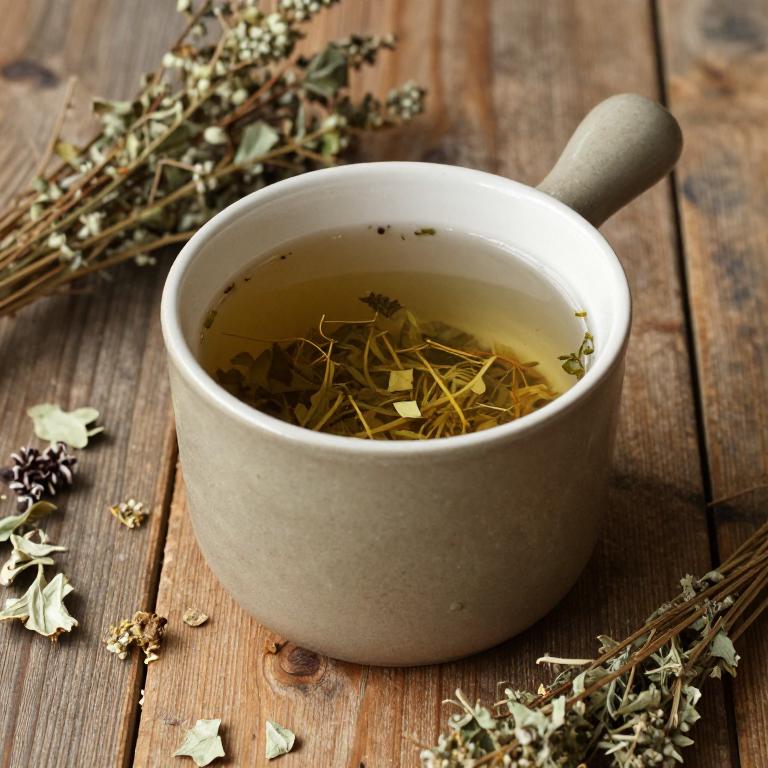
Paeonia suffruticosa herbal decoctions are used to promote cardiovascular health by improving blood circulation and reducing inflammation.
They are also valued for their ability to alleviate symptoms of anxiety and stress, making them a popular remedy in traditional Chinese medicine. These decoctions are believed to support liver function and detoxification, contributing to overall bodily balance. Additionally, they are used to treat menstrual disorders and hormonal imbalances due to their phytoestrogen content.
Their versatility and long-standing use in herbal practices highlight their significance in both preventive and therapeutic healthcare.
37. Black elderberry (Sambucus nigra)
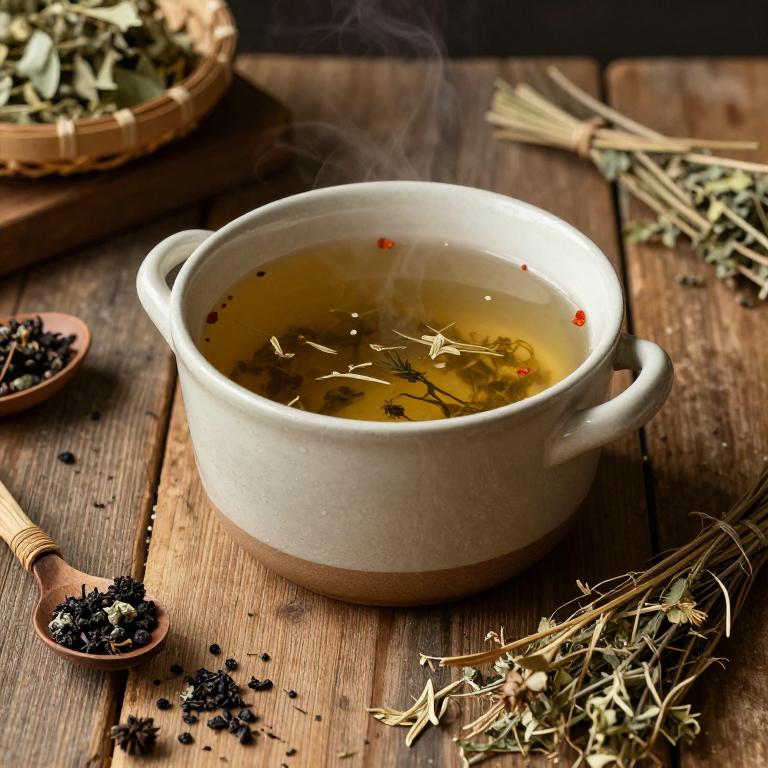
Sambucus nigra herbal decoctions are used to support immune function and alleviate symptoms of colds and flu due to their antiviral and anti-inflammatory properties.
These decoctions are also valued for their ability to reduce fever and ease respiratory congestion, making them a popular remedy during seasonal illnesses. Additionally, sambucus nigra is traditionally used to promote circulation and detoxification, which can aid in overall wellness. The plant's berries and leaves contain compounds like flavonoids and mucilage, which contribute to its therapeutic effects.
Because of these benefits, sambucus nigra decoctions are widely used in herbal medicine to enhance the body's natural defenses and support recovery from mild infections.
38. Purple coneflower (Echinacea angustifolia)
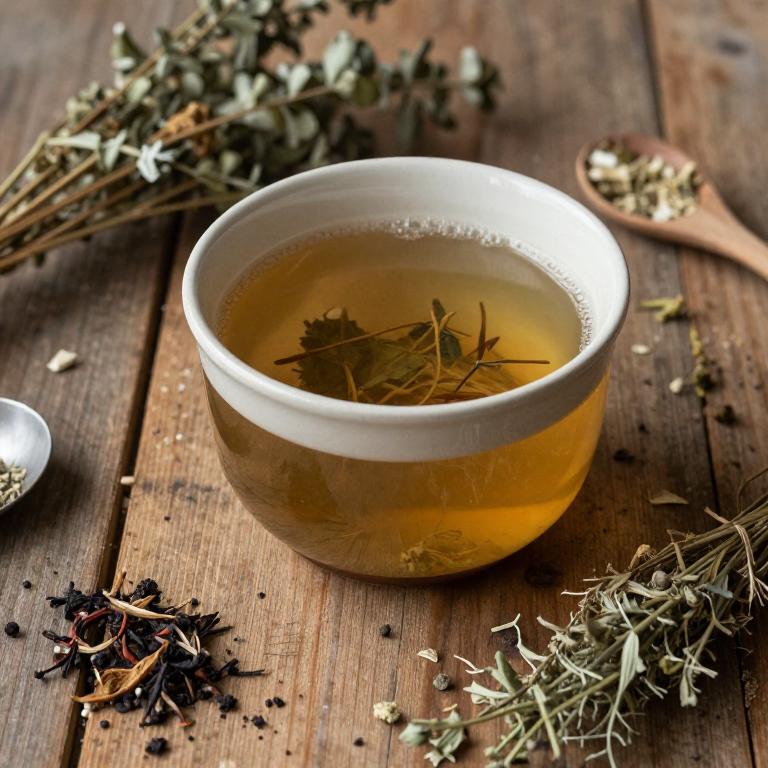
Echinacea angustifolia herbal decoctions are used to support the immune system and reduce the severity of cold and flu symptoms.
These decoctions contain active compounds such as alkamides, caffeic acid derivatives, and polysaccharides, which have been shown to enhance immune function by stimulating the production of white blood cells. They are also believed to have anti-inflammatory and antioxidant properties that help the body combat infections more effectively. Due to their natural origin and relatively mild side effects, echinacea angustifolia decoctions are a popular choice for people seeking alternative or complementary remedies.
However, their use should be guided by a healthcare professional, especially for individuals with allergies or those taking other medications.
39. Goldenseal (Hydrastis canadensis)
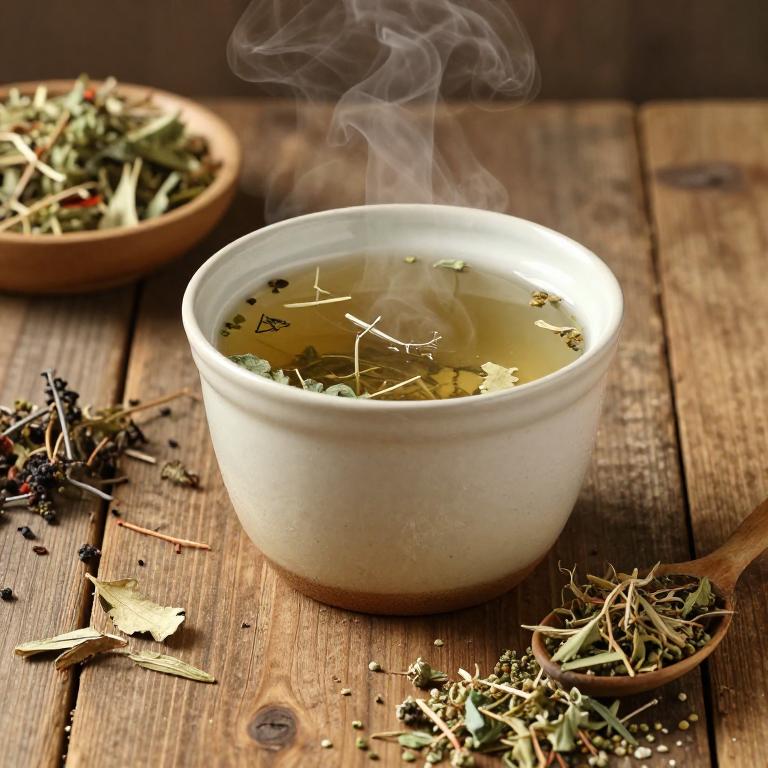
Hydrastis canadensis herbal decoctions are used to support digestive health by promoting the secretion of digestive enzymes and reducing inflammation in the gastrointestinal tract.
They are also employed to treat skin conditions such as eczema and psoriasis due to their antimicrobial and anti-inflammatory properties. These decoctions have been traditionally used to alleviate symptoms of respiratory infections, including coughs and sore throats, because of their expectorant and antiseptic effects. Additionally, they are valued for their ability to enhance oral health by reducing plaque and gingivitis.
The versatility of hydrastis canadensis makes it a valuable herb in both traditional and modern herbal medicine practices.
40. Sutherlandia frutescens
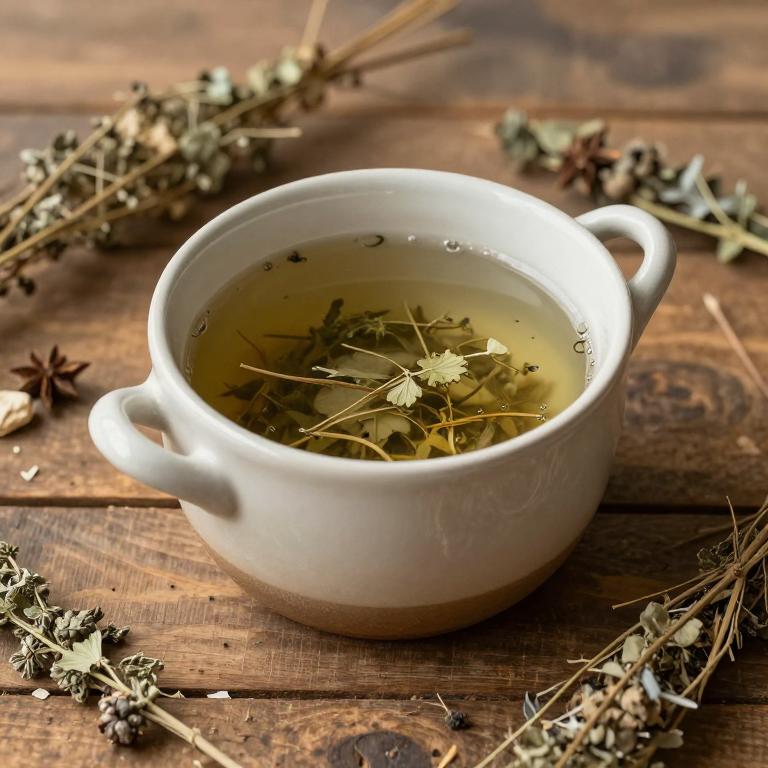
Sutherlandia frutescens herbal decoctions are used to support the immune system and enhance overall vitality in individuals facing chronic illnesses or stress.
These decoctions are particularly valued in traditional African medicine for their potential to alleviate symptoms associated with cancer and other debilitating conditions. The active compounds in sutherlandia frutescens, such as lectins and sutherlandin, are believed to have anti-inflammatory and immunomodulatory properties that contribute to its therapeutic effects. They are often prepared by decocting the roots and leaves, which are then consumed as teas or tinctures.
Due to their purported ability to improve energy levels and support the body's natural defenses, sutherlandia frutescens decoctions are increasingly being explored in complementary and alternative medicine practices.
41. Common mallow (Symphytum officinale)
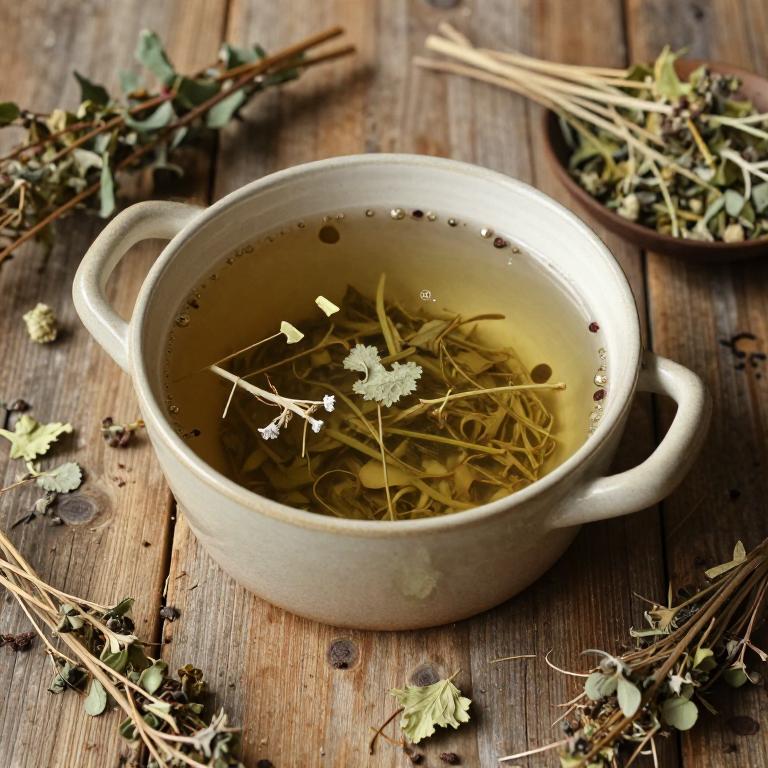
Symphytum officinale herbal decoctions are used to promote healing and reduce inflammation in bones and joints.
They are commonly employed in traditional medicine to treat fractures, sprains, and other musculoskeletal injuries due to their high concentration of allantoin, which supports tissue regeneration. These decoctions also have soothing properties that can alleviate pain and discomfort associated with conditions like arthritis. Their historical use dates back centuries, with evidence of their application in ancient herbal remedies.
The effectiveness of symphytum officinale is attributed to its ability to stimulate cell growth and repair, making it a valuable component in herbal treatments for wound healing and inflammatory disorders.
42. Eucalyptus (Eucalyptus globulus)
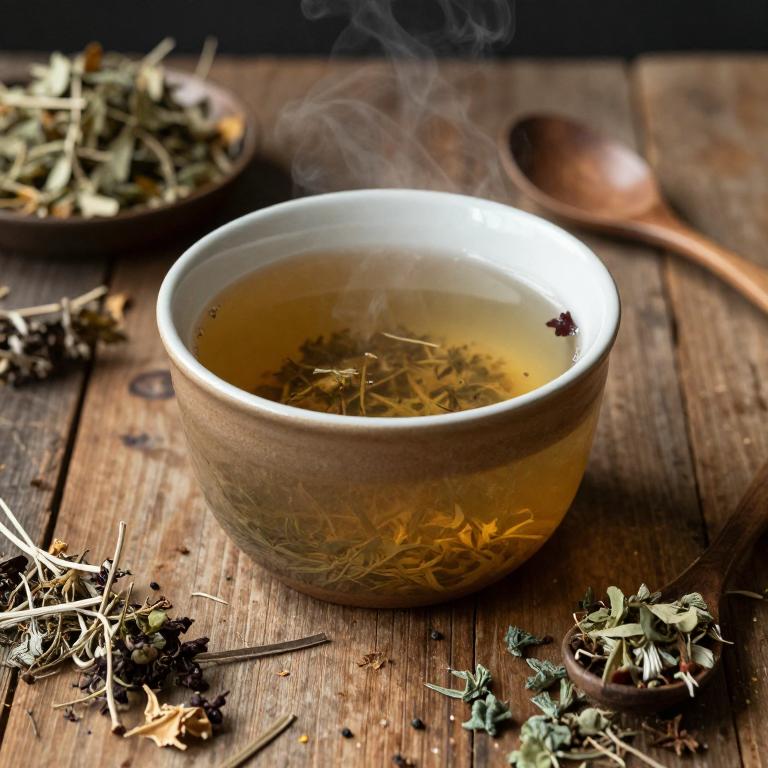
Eucalyptus globulus herbal decoctions are used to alleviate respiratory symptoms such as congestion, coughing, and inflammation due to their rich content of compounds like eucalyptol and cineole, which have antimicrobial and anti-inflammatory properties.
These decoctions are commonly employed in the treatment of conditions like bronchitis, asthma, and the common cold to help clear airways and reduce mucus production. Their soothing effects also make them beneficial for relieving muscle pain and headaches when applied topically. Additionally, eucalyptus globulus decoctions are valued in aromatherapy for their ability to promote mental clarity and reduce stress.
Overall, their versatile medicinal properties make them a popular natural remedy in both traditional and modern healthcare practices.
43. Lemon grass (Cymbopogon citratus)
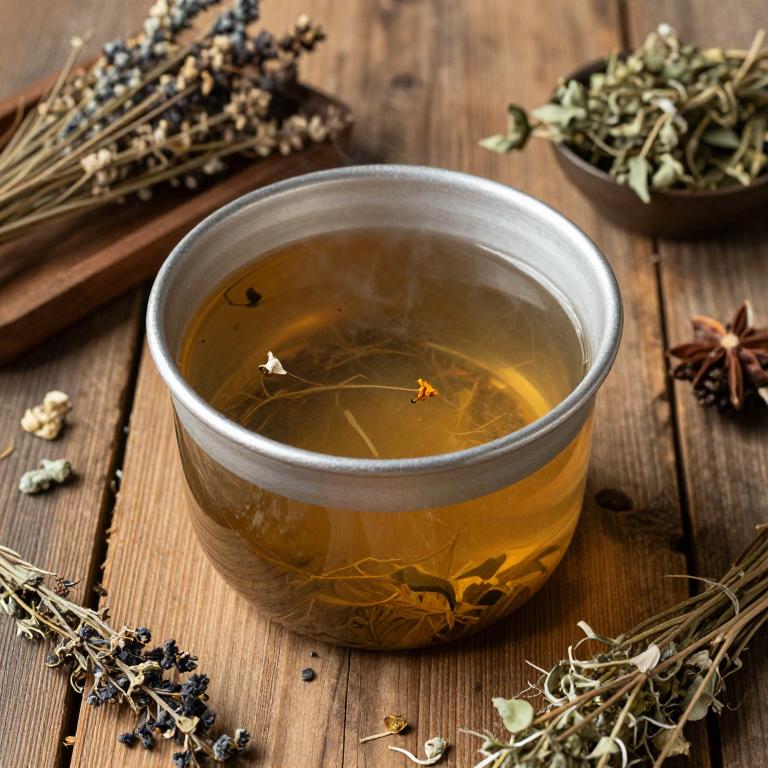
Cymbopogon citratus herbal decoctions are used to promote relaxation and reduce stress due to their calming properties.
These decoctions contain essential oils like citral and geraniol, which have been shown to have sedative and anxiolytic effects. They are commonly used in aromatherapy and as natural remedies for anxiety and insomnia. The antispasmodic qualities of cymbopogon citratus also make it useful for digestive issues such as bloating and indigestion.
Overall, its versatile medicinal properties make it a valuable herb in both traditional and modern holistic health practices.
44. Greek oregano (Satureja hortensis)
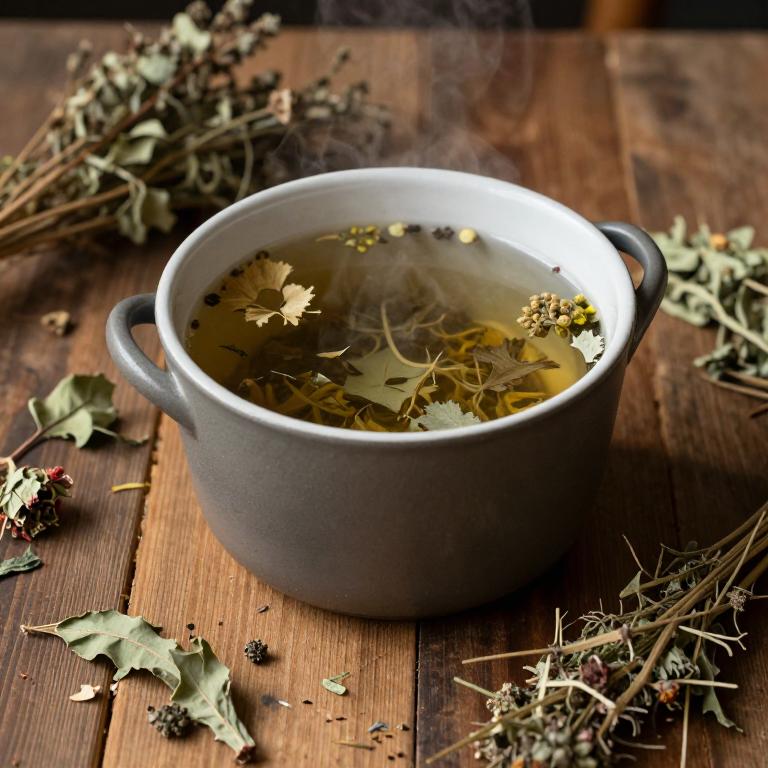
Satureja hortensis herbal decoctions are used to support digestive health and alleviate symptoms of gastrointestinal discomfort.
The plant contains compounds with antimicrobial and anti-inflammatory properties that help in reducing bloating, gas, and indigestion. These decoctions are also valued for their ability to soothe the nervous system, making them useful in managing stress and anxiety. Additionally, satureja hortensis is known to enhance the immune system, promoting overall wellness and resilience against infections.
Its versatility in traditional medicine makes it a popular choice for natural remedies in both culinary and therapeutic applications.
45. Plantain (Plantago lanceolata)
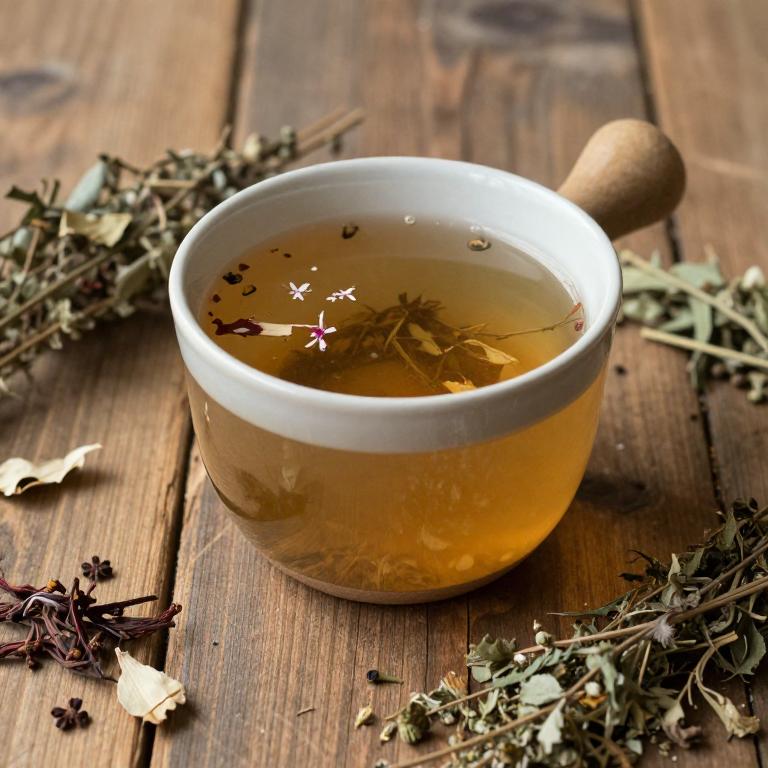
Plantago lanceolata herbal decoctions are used to support respiratory health by alleviating symptoms of coughs, bronchitis, and asthma due to their anti-inflammatory and mucolytic properties.
These decoctions are also valued for their ability to soothe irritated mucous membranes, making them effective in treating sore throats and nasal congestion. Additionally, they are often employed in traditional medicine to promote digestive health by reducing inflammation in the gastrointestinal tract. The high concentration of bioactive compounds such as mucilage, flavonoids, and tannins contributes to their therapeutic effects.
Because of these benefits, plantago lanceolata decoctions are widely used in herbal remedies for their gentle yet potent healing properties.
46. European plum (Prunus domestica)
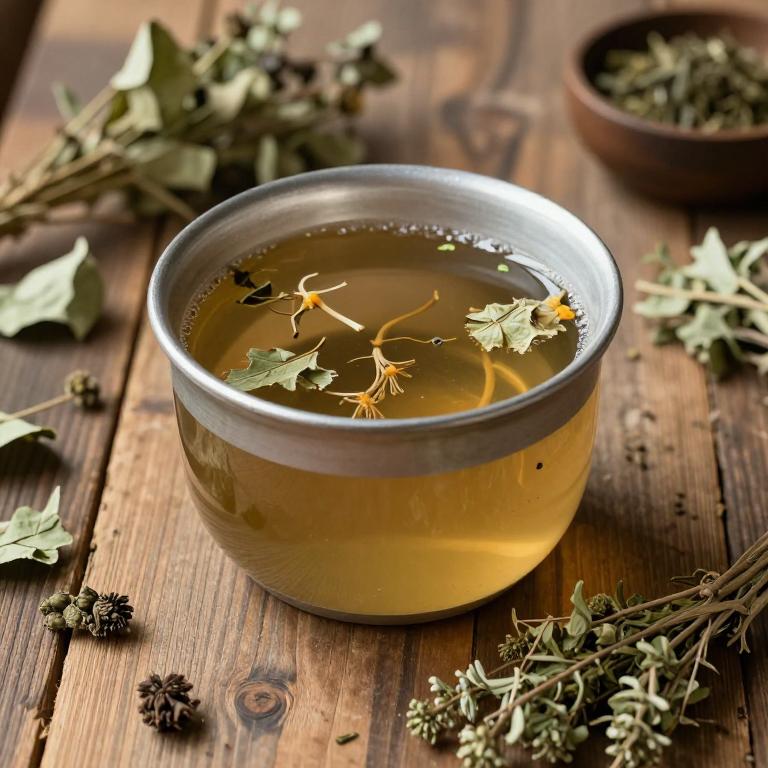
Prunus domestica herbal decoctions are used to support digestive health due to their high content of bioactive compounds such as antioxidants and polyphenols.
These decoctions can help alleviate symptoms of indigestion, bloating, and gastrointestinal discomfort by promoting healthy gut function. Additionally, they are valued for their anti-inflammatory properties, which may help reduce inflammation in the digestive tract. The presence of flavonoids and other beneficial plant compounds contributes to their potential in supporting immune function and overall wellness.
Overall, prunus domestica decoctions offer a natural and holistic approach to improving digestive and immune health.
47. Lemon balm (Melissa officinalis)
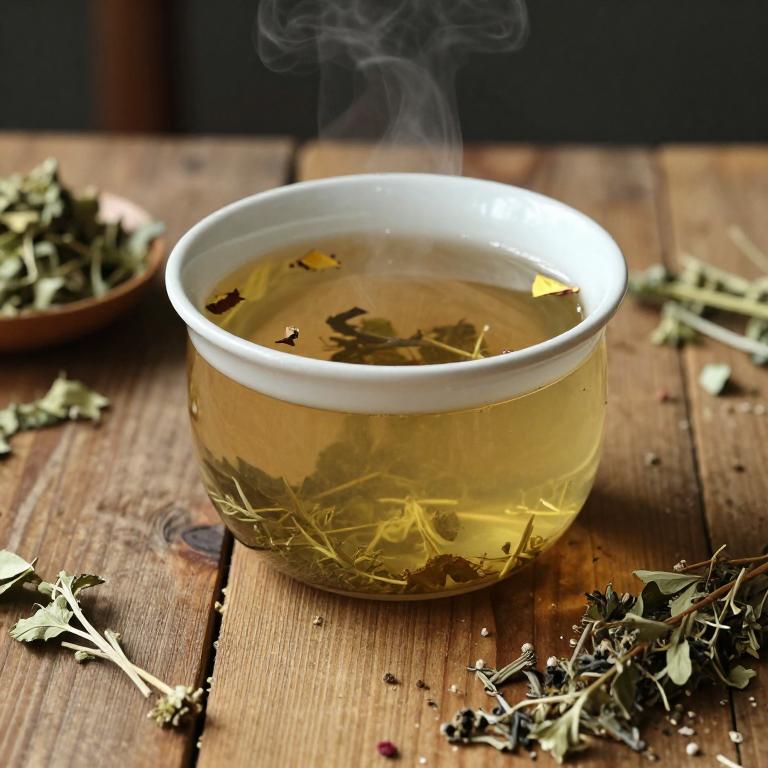
Melissa officinalis herbal decoctions are used to promote relaxation and reduce stress by calming the nervous system.
They are also known to support digestive health by soothing the gastrointestinal tract and alleviating symptoms of indigestion. These decoctions may help in managing mild anxiety and improving mood due to their mild sedative and antidepressant properties. Additionally, they are often used to enhance cognitive function and improve memory, making them beneficial for mental clarity.
The versatility of melissa officinalis makes it a popular choice in herbal medicine for its wide range of therapeutic benefits.
48. Wormwood (Artemisia absinthium)
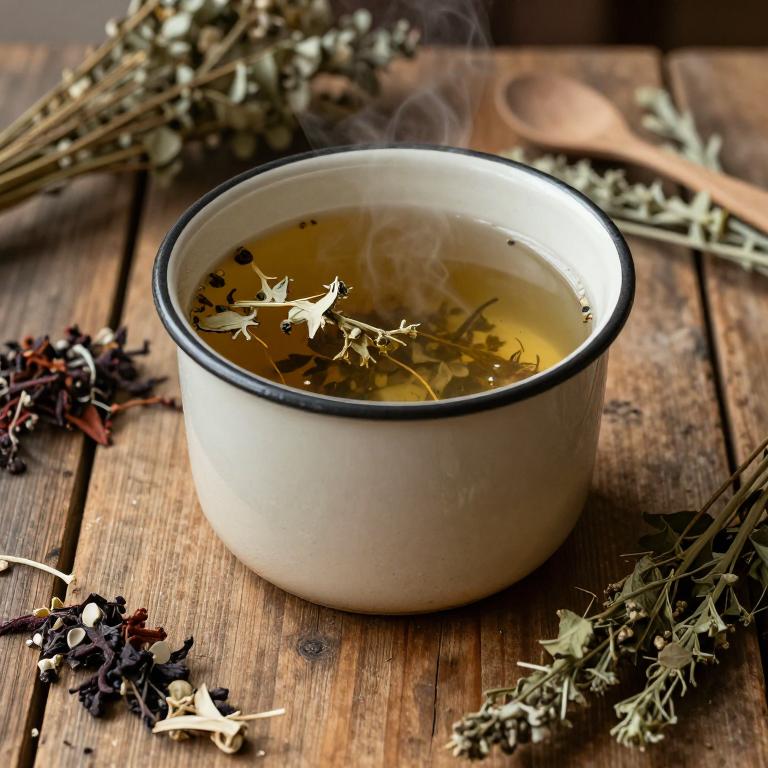
Artemisia absinthium herbal decoctions are used to support digestive health by stimulating bile production and aiding in the digestion of fats.
They are also known to help alleviate symptoms of digestive disorders such as indigestion, bloating, and gallbladder issues due to their cholagogue properties. Additionally, these decoctions may assist in detoxification processes by promoting the elimination of toxins through the liver and kidneys. Their historical use in traditional medicine also suggests potential benefits for mental clarity and mood regulation, though more research is needed to confirm these effects.
Overall, artemisia absinthium decoctions are valued for their multifaceted contributions to both physical and mental well-being.
49. Potato (Solanum tuberosum)
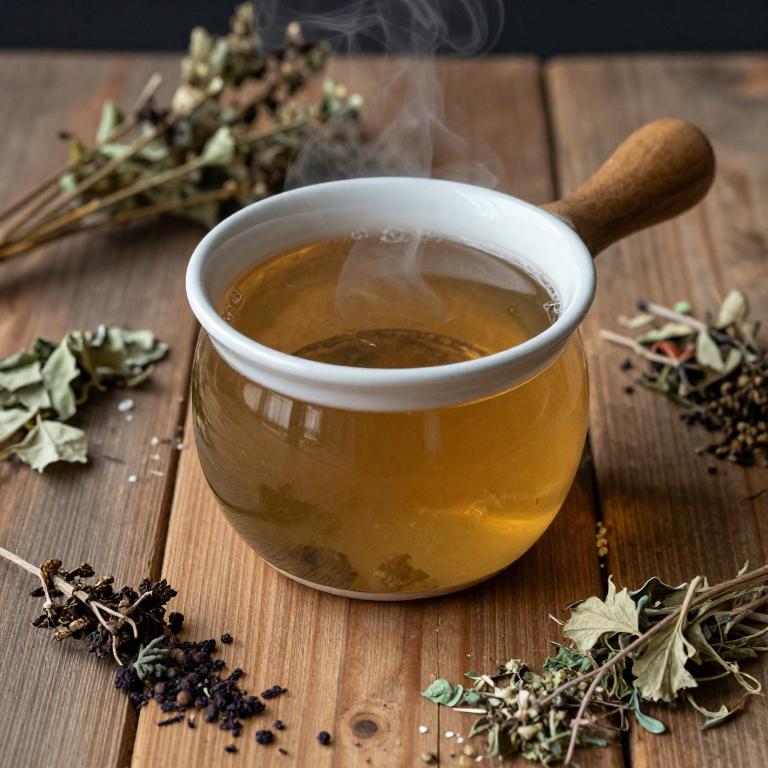
Solanum tuberosum herbal decoctions are used to support digestive health by stimulating appetite and aiding in the digestion of food.
These decoctions are also employed in traditional medicine to alleviate symptoms of inflammation and pain due to their anti-inflammatory properties. They are believed to help regulate blood sugar levels, making them potentially beneficial for individuals with diabetes. Additionally, solanum tuberosum decoctions are used to promote sweating and reduce fever, which can be useful in treating mild infections.
The use of these decoctions is rooted in their rich content of bioactive compounds that contribute to their therapeutic effects.
50. Heartworts (Leonurus cardiaca)
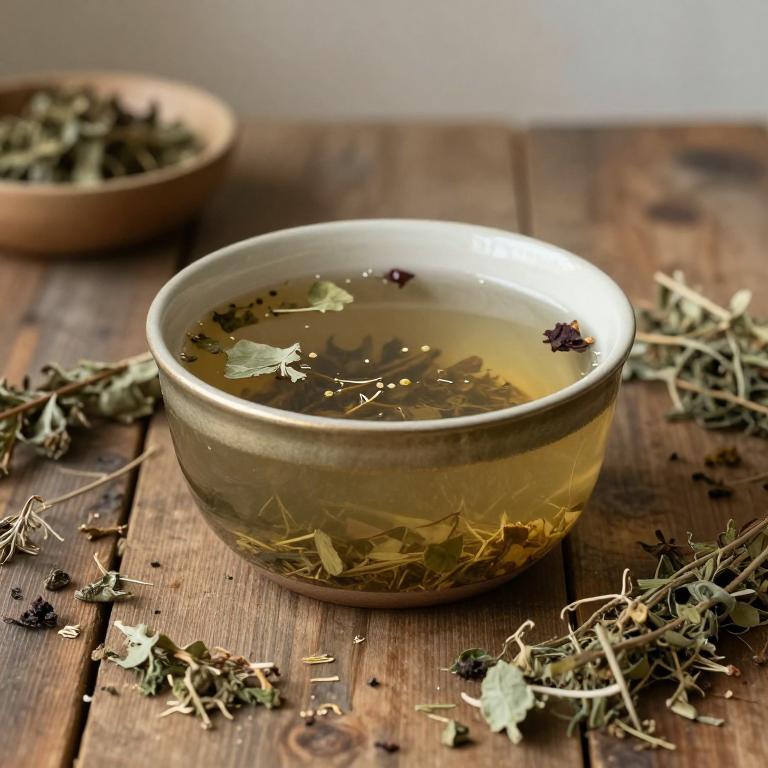
Leonurus cardiaca herbal decoctions are used to support cardiovascular health by promoting circulation and reducing inflammation in the heart and blood vessels.
They contain compounds such as flavonoids and tannins, which may help strengthen the heart muscle and improve blood flow. This herb has been traditionally used in herbal medicine to treat conditions like hypertension and heart failure due to its potential to regulate blood pressure. The decoctions are also believed to have antioxidant properties that protect the cardiovascular system from oxidative stress.
Because of these benefits, leonurus cardiaca is increasingly being explored as a complementary therapy in modern herbal medicine.
51. Chinese peony (Paeonia lactiflora)
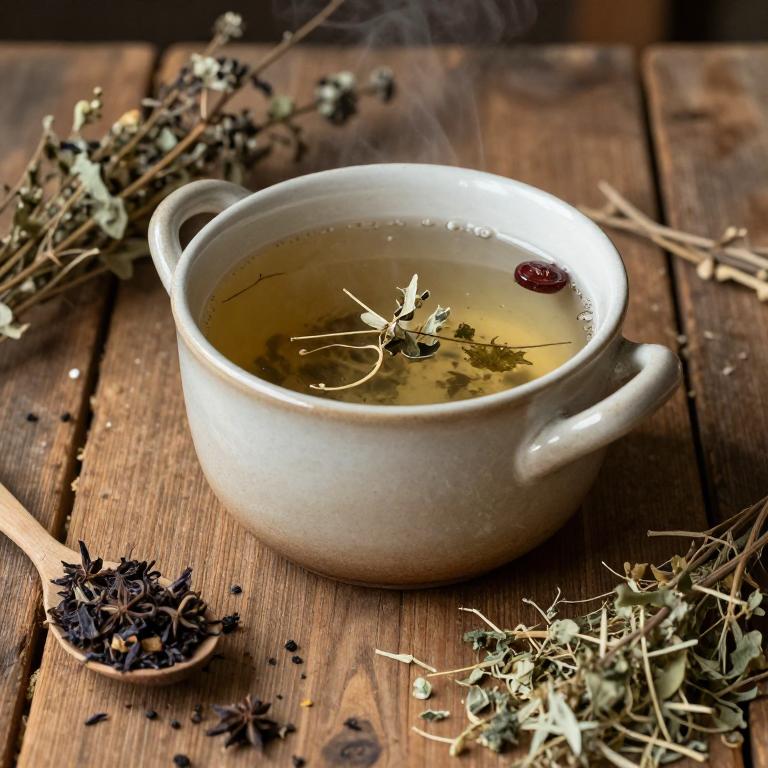
Paeonia lactiflora herbal decoctions are used to promote cardiovascular health by improving blood circulation and reducing cholesterol levels.
These decoctions are also valued for their ability to alleviate symptoms of menopause, such as hot flashes and mood swings, due to their phytoestrogen content. In traditional Chinese medicine, they are often prescribed to treat inflammatory conditions and respiratory disorders like coughs and bronchitis. The anti-inflammatory and antioxidant properties of paeonia lactiflora contribute to its effectiveness in supporting overall immune function.
Because of these diverse therapeutic benefits, paeonia lactiflora decoctions are widely used in both traditional and modern herbal practices.
52. Kudzu (Pueraria lobata)
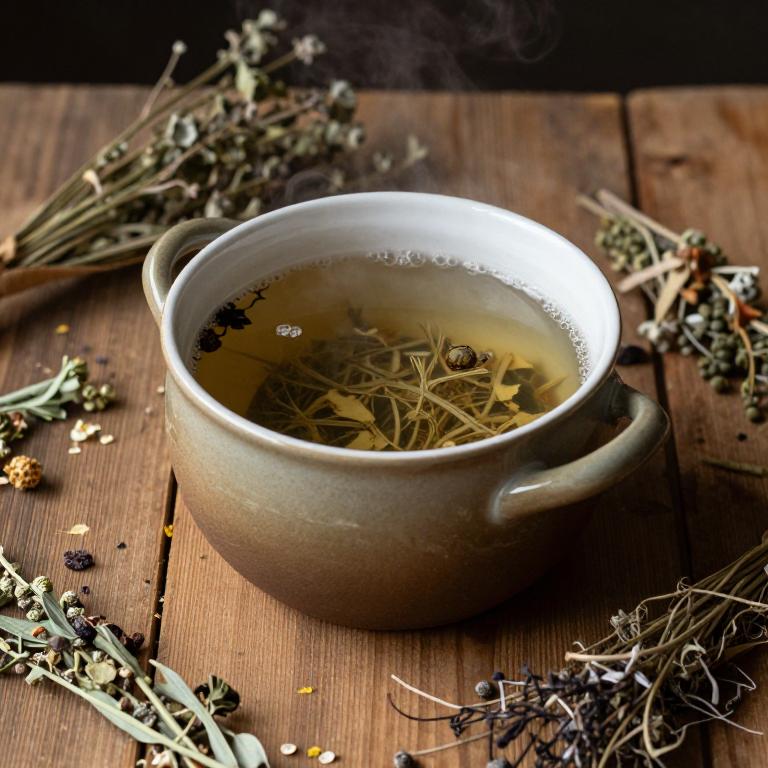
Pueraria lobata herbal decoctions are used to support the treatment of various health conditions, particularly those related to hormonal imbalances and menopausal symptoms.
They are commonly employed in traditional Chinese medicine to alleviate hot flashes, night sweats, and mood swings associated with menopause due to their phytoestrogen content. These decoctions also show potential in managing conditions like hypertension and diabetes by regulating blood pressure and improving insulin sensitivity. Additionally, they are valued for their anti-inflammatory and antioxidant properties, which contribute to overall wellness and immune support.
The use of pueraria lobata decoctions is rooted in centuries of traditional knowledge, making them a respected complementary therapy in holistic health practices.
53. Maca (Lepidium meyenii)
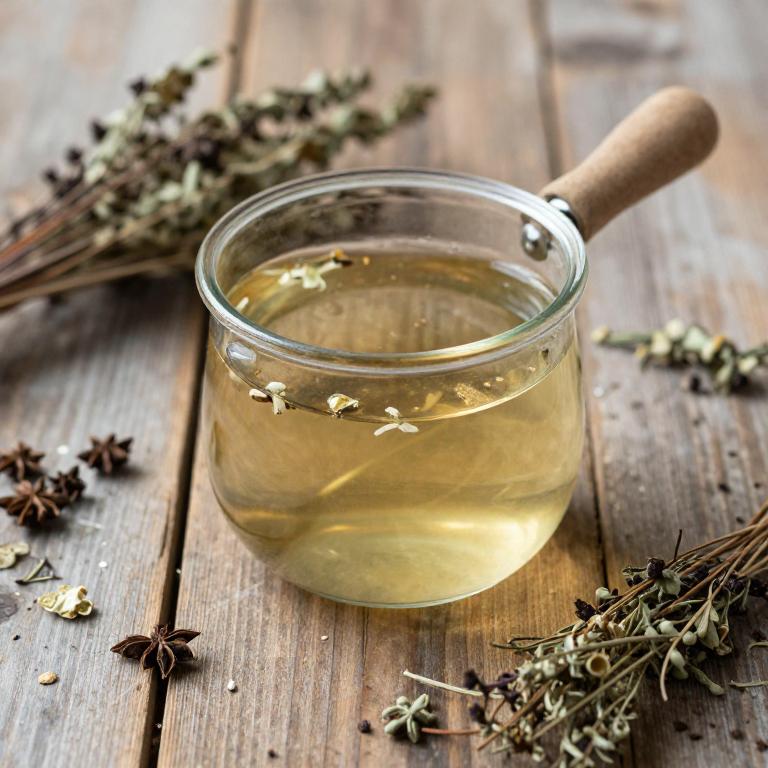
Lepidium meyenii herbal decoctions are used to support digestive health and alleviate gastrointestinal discomfort.
These decoctions are believed to aid in reducing inflammation in the stomach and intestines, making them beneficial for individuals suffering from conditions like gastritis or irritable bowel syndrome. The active compounds in the decoctions may help regulate gut motility and promote the secretion of digestive enzymes. Additionally, they are often consumed to enhance nutrient absorption and improve overall digestive efficiency.
Due to their natural properties, lepidium meyenii decoctions are increasingly sought after as a complementary therapy in holistic health practices.
54. Golden root (Rhodiola rosea)
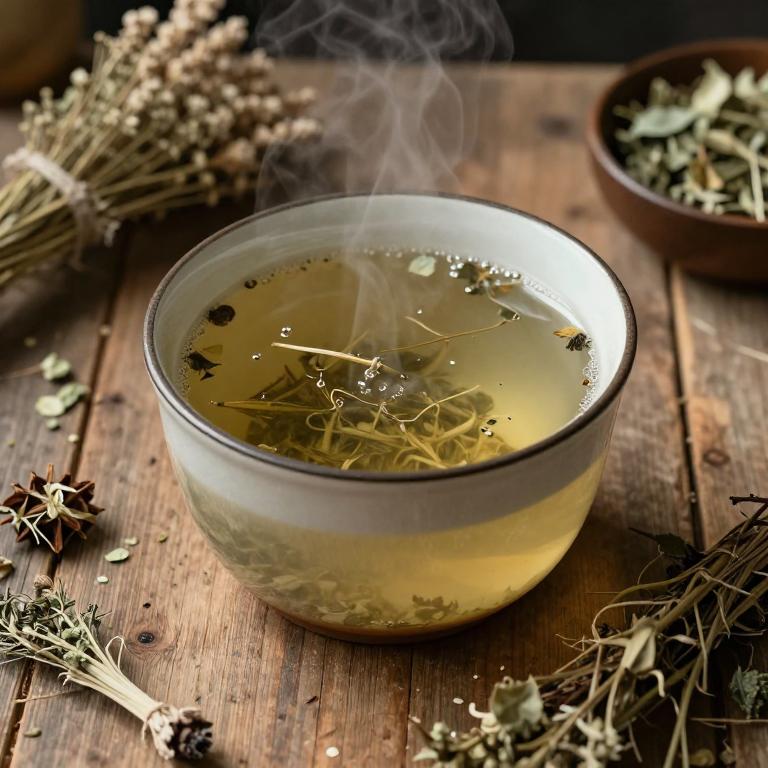
Rhodiola rosea herbal decoctions are used to enhance physical and mental performance by increasing energy levels and reducing fatigue.
They are particularly beneficial for individuals experiencing stress, as they help regulate the body's response to stressors and promote a sense of calm. These decoctions are also known to support cognitive function, improving focus, memory, and mental clarity. Their adaptogenic properties make them valuable in balancing the body's systems and improving overall well-being.
Due to these benefits, rhodiola rosea is increasingly being used in natural health practices to support vitality and resilience in daily life.
55. Puncture vine (Tribulus terrestris)
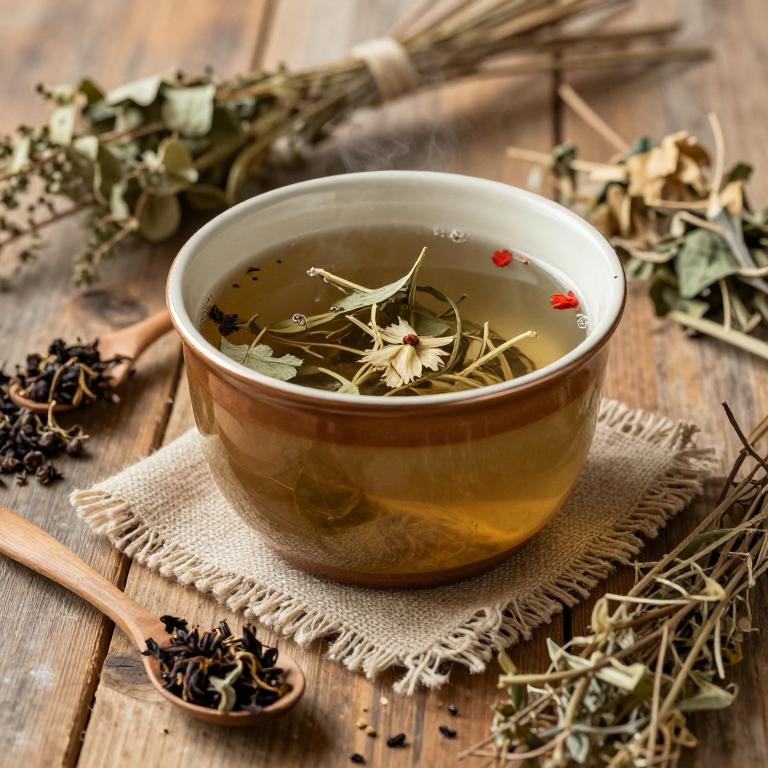
Tribulus terrestris herbal decoctions are used to enhance physical performance and support sexual health due to their purported ability to increase testosterone levels.
These decoctions are often consumed by athletes and bodybuilders to improve strength, stamina, and muscle mass. They are also believed to aid in the treatment of infertility and erectile dysfunction by promoting hormonal balance. In traditional medicine, they are used to treat urinary tract infections and kidney ailments, owing to their diuretic properties.
The widespread use of tribulus terrestris decoctions is attributed to its rich content of flavonoids, saponins, and other bioactive compounds that may contribute to its various therapeutic effects.
56. Sacred lotus (Nelumbo nucifera)
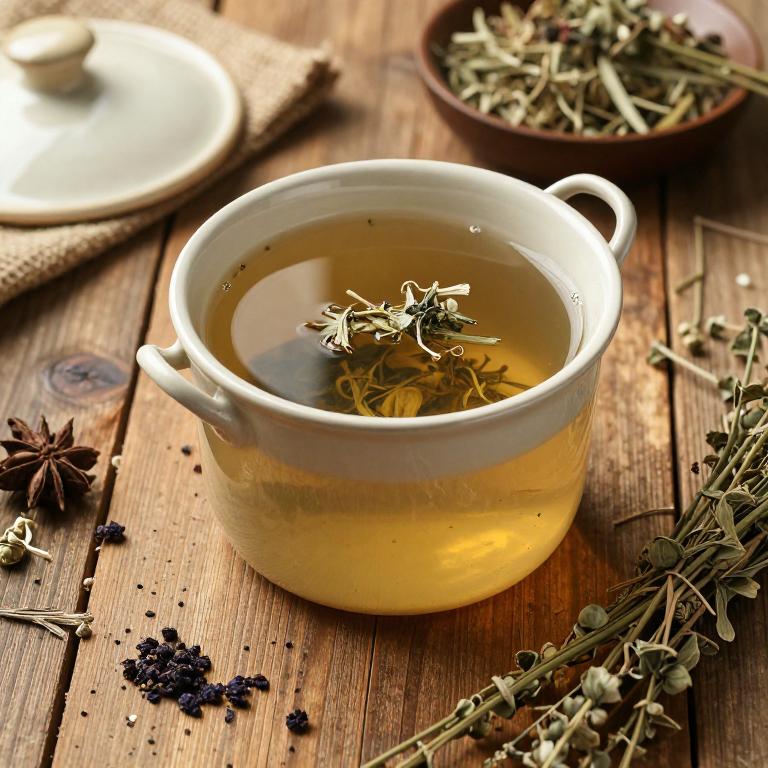
Nelumbo nucifera herbal decoctions are used to support digestive health by promoting the secretion of digestive enzymes and alleviating symptoms of indigestion and bloating.
They are also valued for their calming effects on the nervous system, making them useful in managing stress and anxiety. These decoctions are often employed in traditional medicine to reduce inflammation and promote healing in conditions such as arthritis and skin disorders. The presence of antioxidants in the decoctions helps protect cells from oxidative stress, contributing to overall wellness.
Due to their wide range of therapeutic benefits, nelumbo nucifera decoctions are increasingly recognized in both traditional and modern herbal practices.
57. Cyperus rotundus
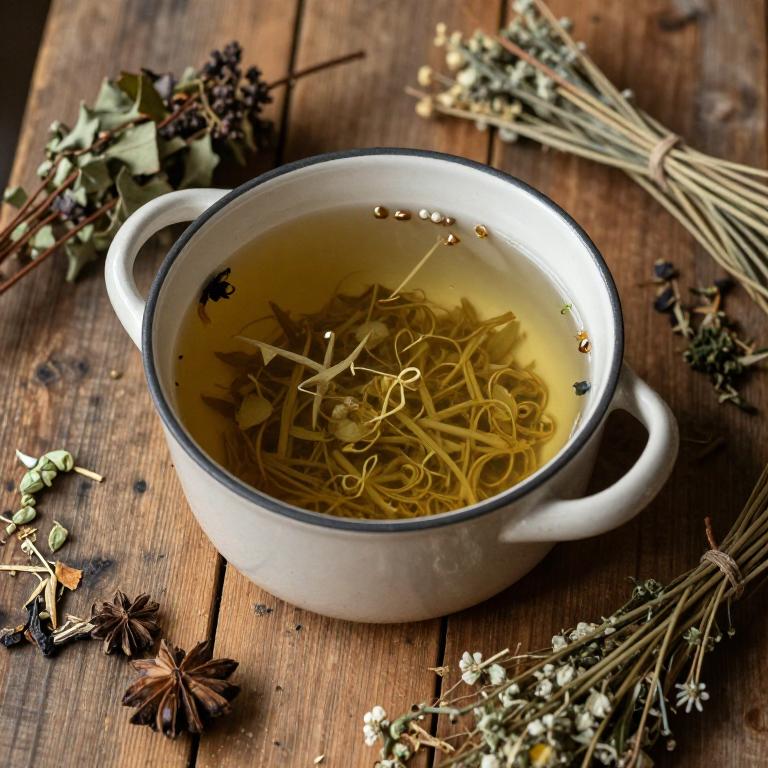
Cyperus rotundus herbal decoctions are used to treat a variety of health conditions due to their rich pharmacological properties.
They are commonly employed in traditional medicine to alleviate symptoms of digestive disorders such as indigestion and bloating. The decoctions are also valued for their anti-inflammatory and antispasmodic effects, which can help manage conditions like menstrual cramps and gastrointestinal spasms. Additionally, they are used to support respiratory health by reducing coughing and clearing mucus from the lungs.
These benefits are attributed to the presence of bioactive compounds such as flavonoids and phenolic acids, which contribute to their therapeutic value.
58. Marigold (Calendula officinalis)
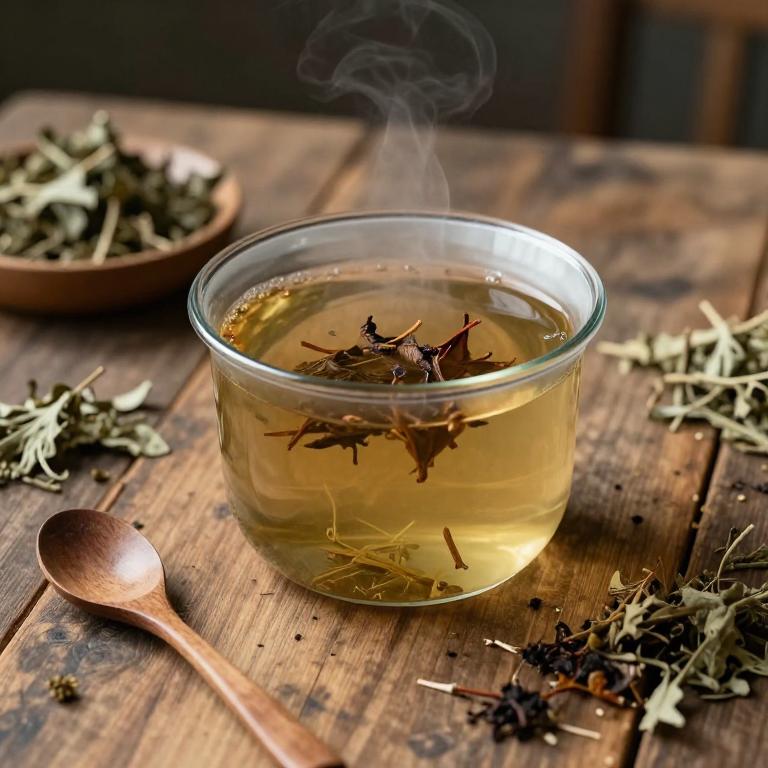
Calendula officinalis herbal decoctions are used to promote skin health and treat various dermatological conditions due to their anti-inflammatory and antimicrobial properties.
These decoctions are commonly applied topically to soothe irritated skin, reduce redness, and accelerate wound healing. They are also used to alleviate symptoms of eczema, psoriasis, and minor burns because of their soothing and regenerative effects. The presence of triterpenoids and flavonoids in calendula contributes to its effectiveness in reducing inflammation and supporting tissue repair.
Overall, calendula officinalis decoctions are valued for their natural therapeutic benefits and gentle action on the skin.
59. Marshmallow (Althaea officinalis)
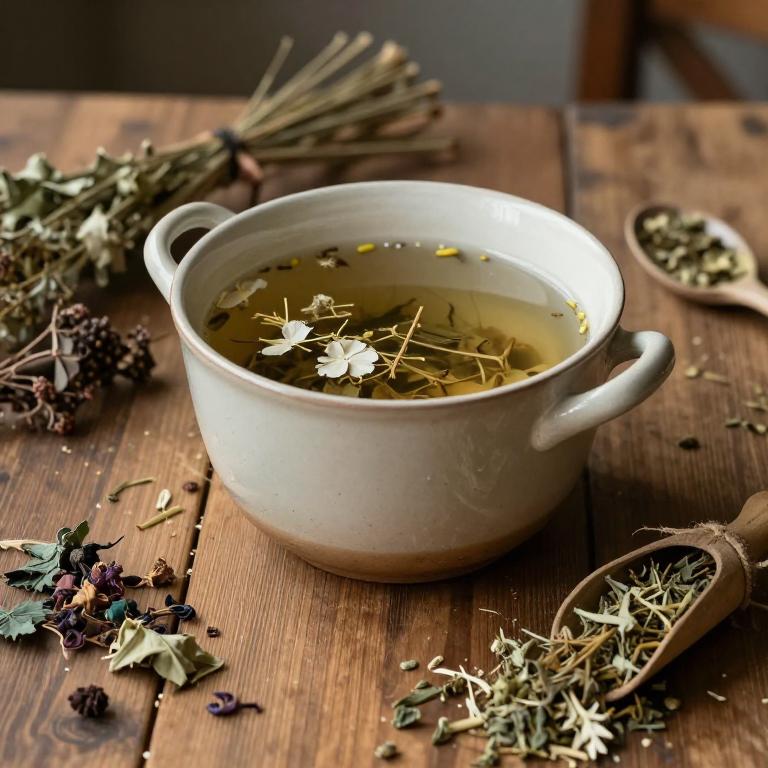
Althaea officinalis herbal decoctions are used to soothe respiratory conditions such as coughs, bronchitis, and sore throats due to their mucilage content, which forms a protective layer over irritated mucous membranes.
These decoctions also have mild anti-inflammatory properties that can help reduce swelling in the respiratory tract, making them beneficial for individuals suffering from chronic respiratory issues. Additionally, they are commonly used to alleviate digestive discomfort, such as indigestion and gastritis, because the mucilage can coat the stomach lining and ease irritation. The soothing effects of althaea officinalis make it a popular remedy in traditional medicine for its gentle yet effective action on both the respiratory and digestive systems.
Its versatility and mild nature make it a safe option for long-term use under proper guidance.
60. Kava (Piper methysticum)
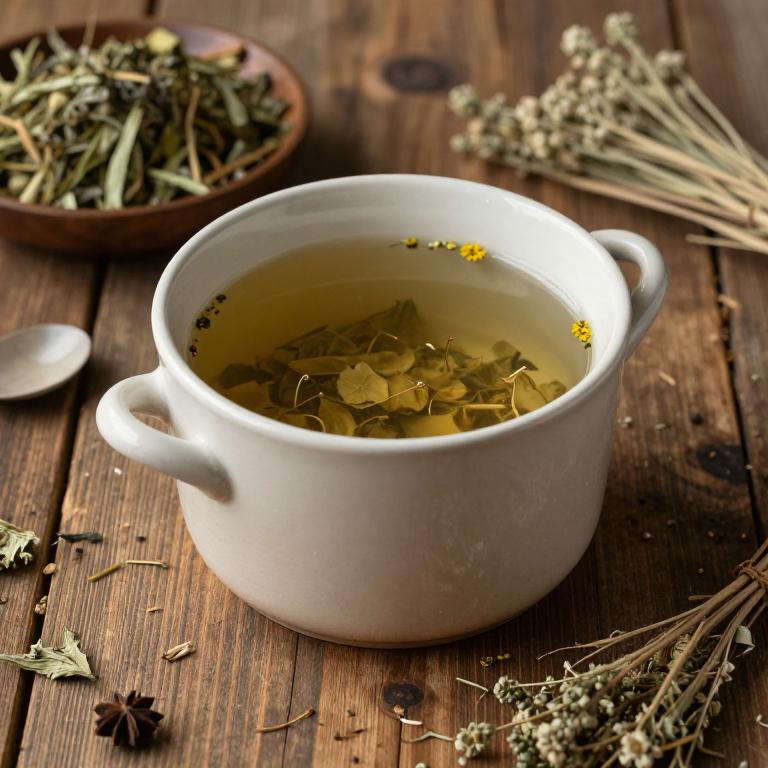
Piper methysticum herbal decoctions are used to promote relaxation and reduce anxiety by affecting the central nervous system.
These decoctions, commonly known as kava, contain compounds like kavalactones that have calming and sedative properties. They are often consumed in social and ceremonial contexts to foster a sense of community and well-being. The use of piper methysticum decoctions is also associated with traditional healing practices in the Pacific Islands, where they have been valued for their medicinal benefits for centuries.
Due to their soothing effects, these decoctions are increasingly being explored for their potential in modern wellness and mental health support.
61. Red sage (Salvia miltiorrhiza)
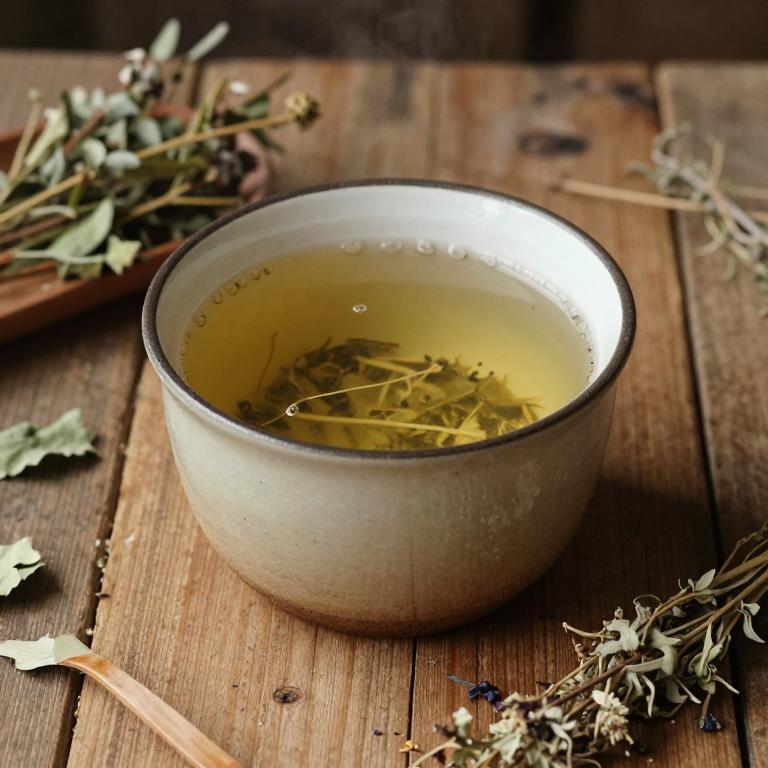
Salvia miltiorrhiza herbal decoctions are used to promote cardiovascular health by improving blood circulation and reducing the risk of blood clots.
They are also employed in traditional Chinese medicine to treat conditions such as coronary artery disease and hypertension due to their antioxidant and anti-inflammatory properties. These decoctions are believed to support liver function and may help in the treatment of liver disorders by enhancing detoxification processes. Additionally, they are used to alleviate symptoms of neurodegenerative diseases like Alzheimer's due to their potential neuroprotective effects.
The widespread use of salvia miltiorrhiza is attributed to its ability to regulate blood flow, reduce oxidative stress, and support overall cellular health.
62. Catnip (Nepeta cataria)
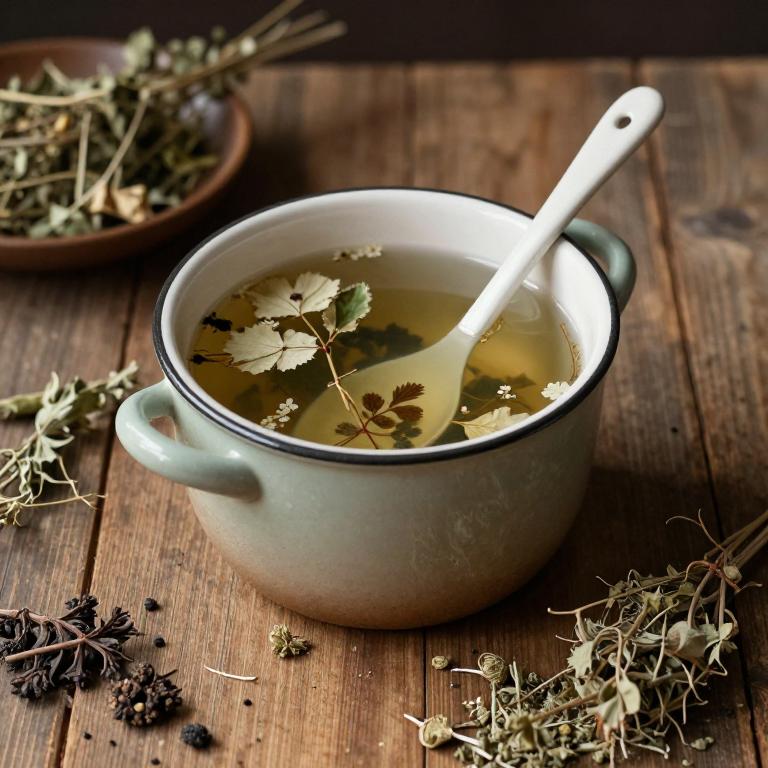
Nepeta cataria herbal decoctions are used to promote relaxation and alleviate symptoms of anxiety and stress.
The plant, commonly known as catnip, contains compounds like nepetalactone that have calming effects on the nervous system. These decoctions are often consumed as teas to help ease insomnia and improve sleep quality. Additionally, they may support digestive health by reducing bloating and nausea.
Due to their natural composition and mild effects, nepeta cataria decoctions are favored as a gentle alternative to pharmaceutical sedatives.
63. Black cohosh (Cimicifuga racemosa)
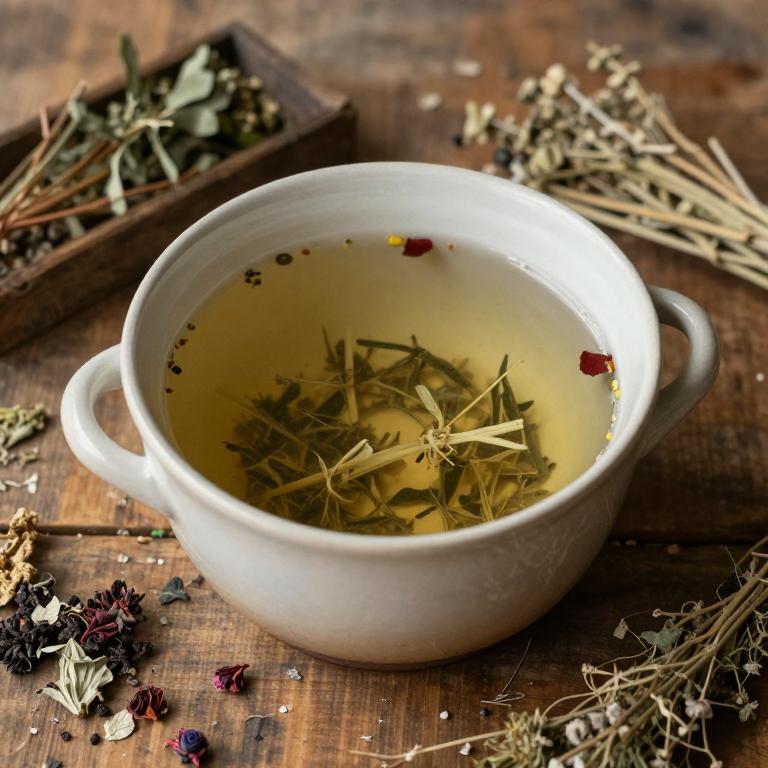
Cimicifuga racemosa herbal decoctions are used to alleviate symptoms of menopause, such as hot flashes, night sweats, and mood swings.
These decoctions are believed to support hormonal balance by containing phytoestrogens that may mimic the effects of estrogen in the body. They are also utilized in traditional medicine to treat menstrual irregularities and pelvic pain. The root of the plant is often prepared into decoctions to enhance the absorption of its active compounds.
Due to their natural composition and potential for fewer side effects compared to synthetic hormone therapies, cimicifuga racemosa decoctions are a popular alternative for women seeking holistic treatment options.
64. Wheat (Triticum aestivum)
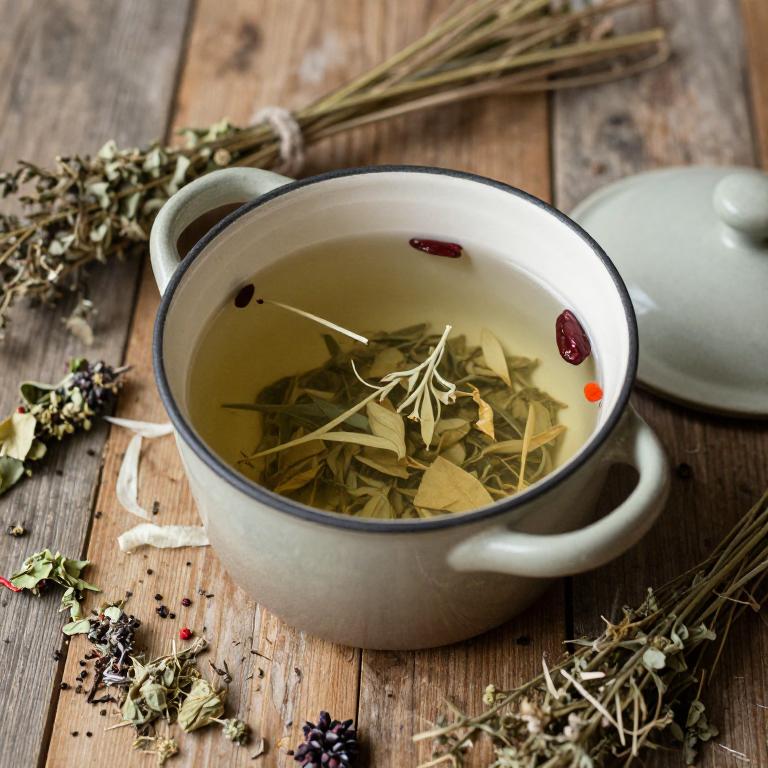
Triticum aestivum herbal decoctions are used to support digestive health by stimulating the production of digestive enzymes and promoting healthy gut flora.
These decoctions are also valued for their potential anti-inflammatory properties, which may help alleviate symptoms of conditions like arthritis and inflammatory bowel disease. In traditional medicine, they are often used to reduce stress and improve sleep quality due to their calming effects on the nervous system. Additionally, triticum aestivum decoctions may aid in detoxification by supporting liver function and helping the body eliminate toxins more efficiently.
Their versatility and traditional use make them a valuable component in holistic health practices for a range of wellness benefits.
65. Panax ginseng (Panax ginseng)
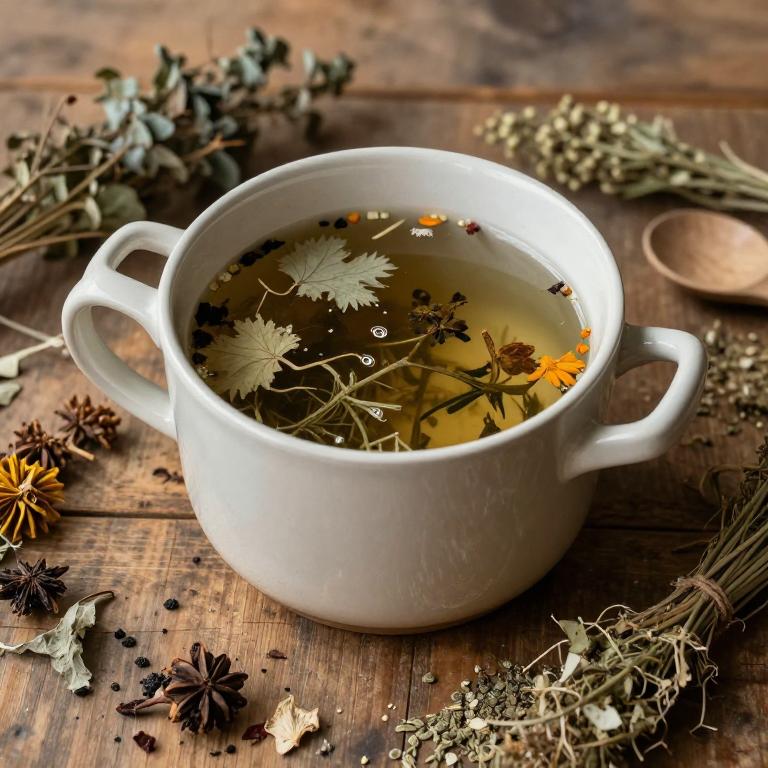
Panax ginseng herbal decoctions are used to enhance physical and mental performance by stimulating energy production and improving cognitive function.
They are commonly consumed to support immune system function and reduce fatigue, making them popular among individuals under stress or with demanding lifestyles. These decoctions also have adaptogenic properties, helping the body resist stress and maintain balance in physiological functions. In traditional medicine, they are valued for their ability to promote longevity and vitality, often used in formulations for overall wellness.
Their historical use in both Eastern and Western medicine underscores their potential as a holistic health supplement.
66. Valerian (Valeriana officinalis)
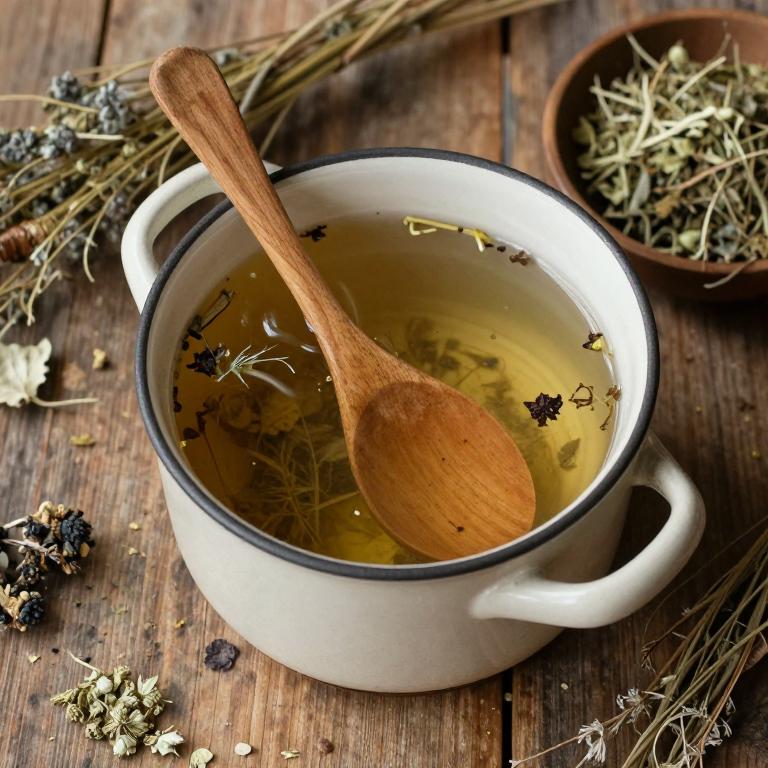
Valeriana officinalis herbal decoctions are used to promote relaxation and alleviate symptoms of anxiety and insomnia.
These decoctions contain compounds such as valerenic acid, which interact with the brain's GABA receptors to reduce neuronal excitability. This makes them particularly effective for individuals experiencing stress-related sleep disturbances or mild to moderate anxiety disorders. Additionally, they are often used to ease muscle tension and reduce nervousness, making them a popular choice in traditional and complementary medicine.
Their natural origin and relatively mild side effect profile contribute to their continued use in herbal remedies for mental and physical well-being.
67. Negundo vitex (Vitex negundo)
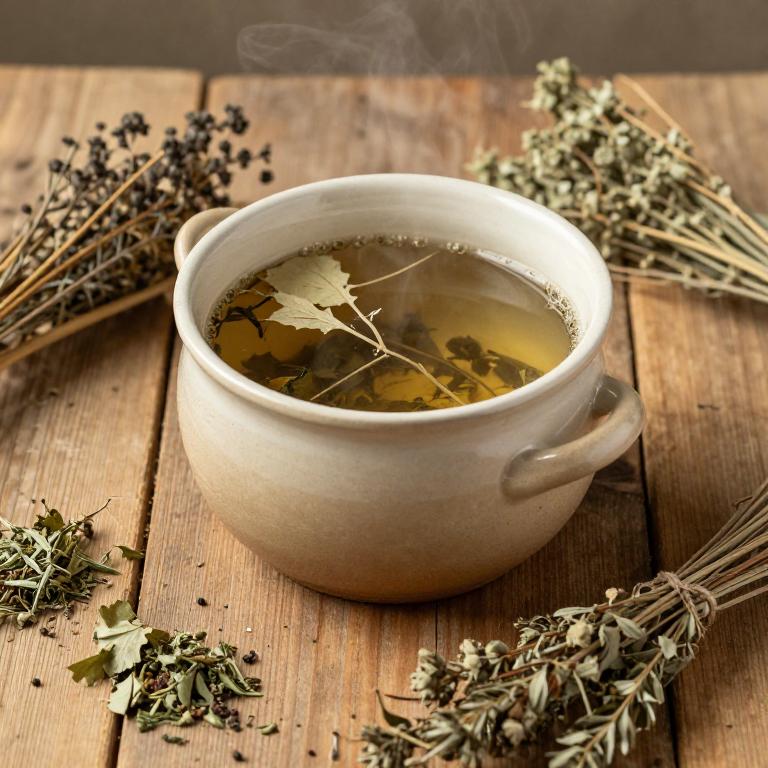
Vitex negundo herbal decoctions are used to support hormonal balance and alleviate symptoms of premenstrual syndrome (PMS) due to their phytoestrogenic properties.
These decoctions are also valued for their ability to reduce stress and promote emotional well-being, making them a popular remedy in traditional medicine. The plant's compounds may help regulate menstrual cycles and ease menstrual cramps, offering natural relief for women's health issues. Additionally, Vitex negundo decoctions are sometimes used to improve sleep quality and reduce anxiety, contributing to overall wellness.
Their versatility and long history of use in herbal medicine highlight their significance in addressing both physical and emotional health concerns.
68. Garlic (Allium sativum)
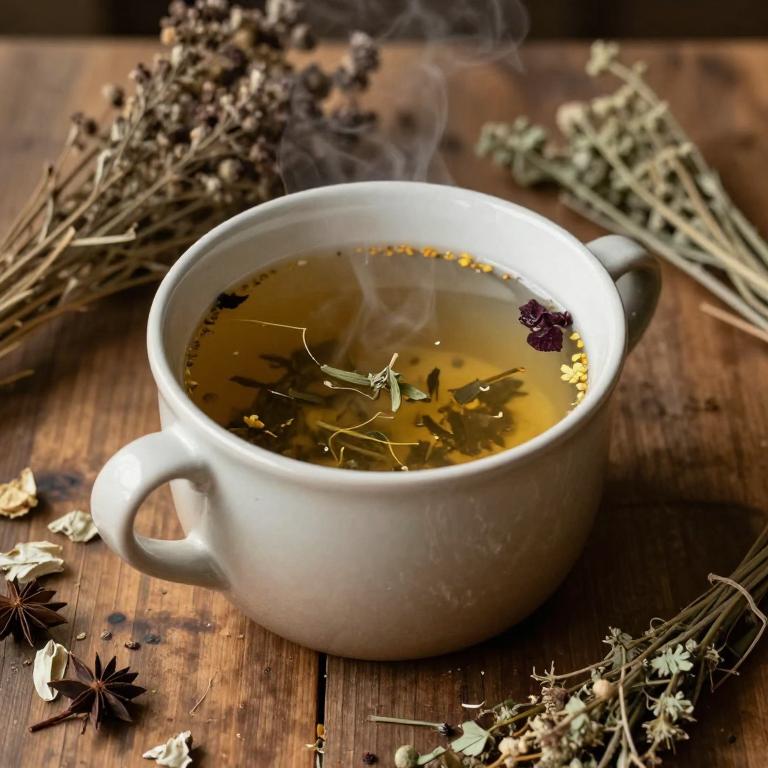
Allium sativum herbal decoctions are used to support cardiovascular health by helping to lower blood pressure and improve circulation.
They are also beneficial for respiratory conditions, such as coughs and colds, due to their antimicrobial and expectorant properties. These decoctions can aid in digestive health by stimulating the production of digestive enzymes and reducing inflammation in the gastrointestinal tract. Additionally, they are valued for their antioxidant properties, which help protect cells from damage and may reduce the risk of chronic diseases.
The use of allium sativum decoctions is supported by traditional medicine practices and growing scientific evidence of their therapeutic benefits.
69. Sweet wormwood (Artemisia annua)
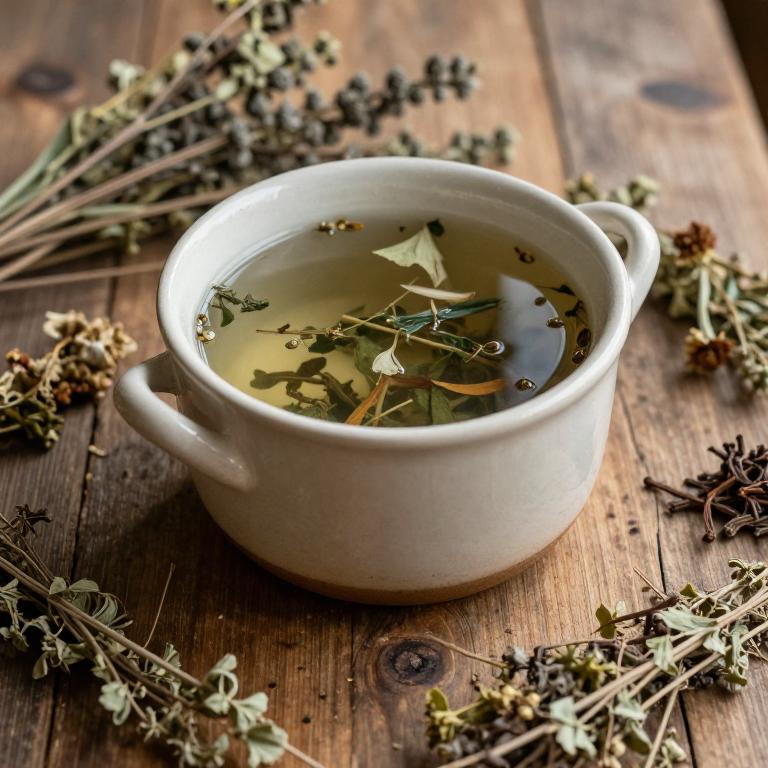
Artemisia annua herbal decoctions are used to treat malaria due to their high content of artemisinin, a compound with potent antimalarial properties.
This traditional Chinese medicine has been widely studied and is now a key component in modern antimalarial drugs. The decoctions work by interfering with the life cycle of the Plasmodium parasite, which causes malaria. They are particularly effective against drug-resistant strains of the disease, making them a vital resource in global health efforts.
Additionally, artemisia annua decoctions are sometimes used in traditional remedies for other ailments such as fever, inflammation, and digestive issues, though more research is needed to confirm their efficacy for these purposes.
70. Long pepper (Piper longum)
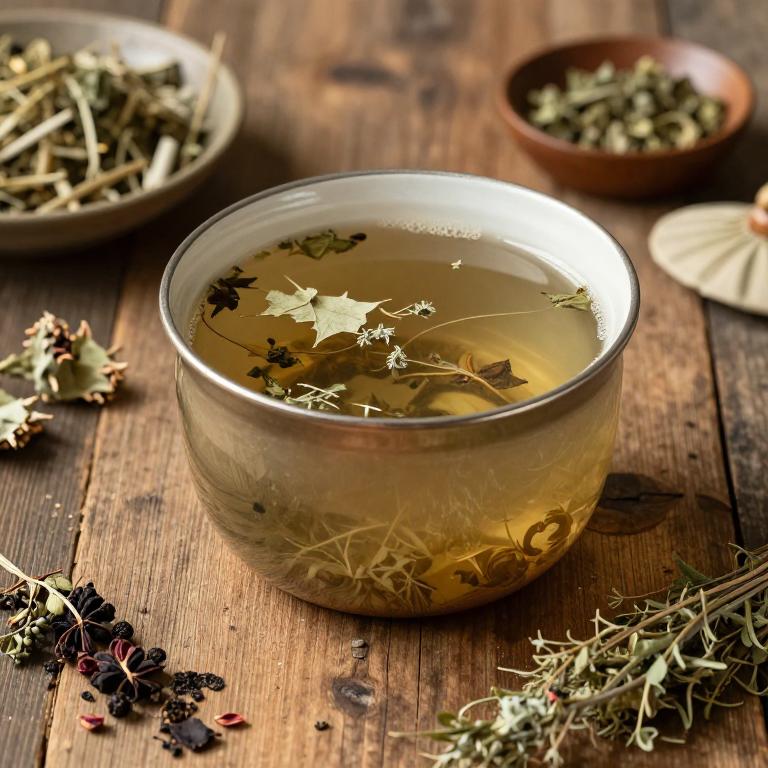
Piper longum herbal decoctions are used to support respiratory health by alleviating symptoms of coughs, bronchitis, and asthma due to their expectorant and anti-inflammatory properties.
These decoctions also aid in digestion by stimulating the secretion of digestive enzymes, making them beneficial for individuals suffering from indigestion or bloating. Additionally, they are valued for their ability to relieve nasal congestion and reduce inflammation in the upper respiratory tract, which can help with conditions like sinusitis. The presence of bioactive compounds such as piperine and essential oils contributes to their therapeutic effects.
Overall, piper longum decoctions are widely used in traditional medicine for their holistic approach to treating respiratory and digestive ailments.
71. Moringa tree (Moringa oleifera)
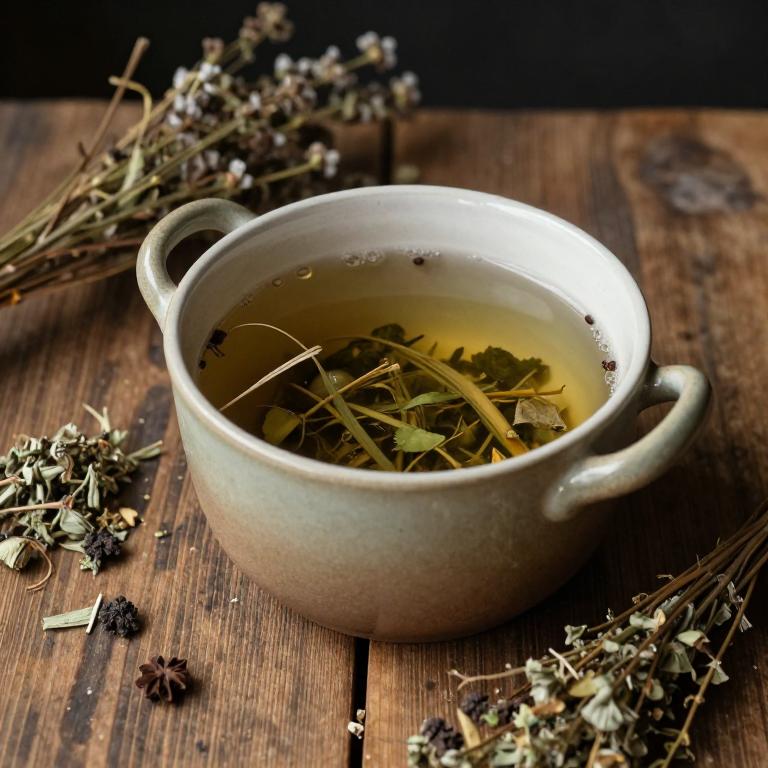
Moringa oleifera herbal decoctions are used to enhance nutritional intake due to their high concentration of vitamins, minerals, and antioxidants.
These decoctions are valued for their ability to support immune function and reduce inflammation in the body. They are also commonly used to improve digestion and promote gut health by balancing intestinal flora. Additionally, moringa decoctions have been traditionally used to treat ailments such as diabetes and hypertension due to their hypoglycemic and antihypertensive properties.
Overall, the versatility and nutritional density of moringa oleifera make it a valuable natural remedy in both traditional and modern health practices.
72. Ashwagandha (Withania somnifera)
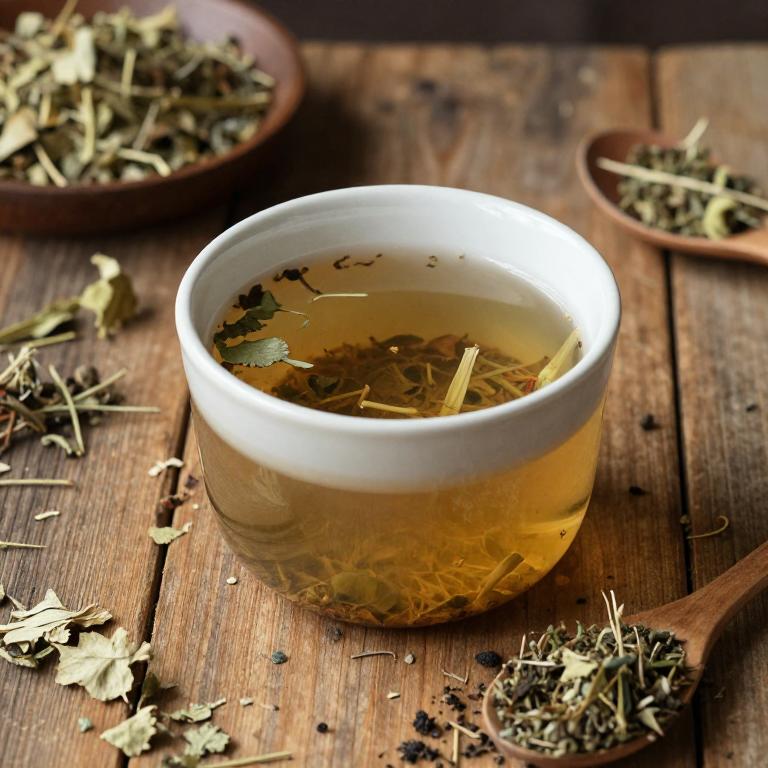
Withania somnifera herbal decoctions are used to support overall health and well-being by enhancing vitality and reducing stress.
These decoctions are particularly valued for their adaptogenic properties, which help the body resist stressors and maintain balance. They are commonly used to alleviate symptoms of anxiety, fatigue, and insomnia due to their calming and restorative effects. Additionally, they may promote immune function and improve cognitive performance, making them a popular choice in traditional and modern herbal medicine.
The widespread use of Withania somnifera decoctions is attributed to their holistic benefits and the growing interest in natural remedies for chronic health conditions.
73. Mountain arnica (Arnica montana)
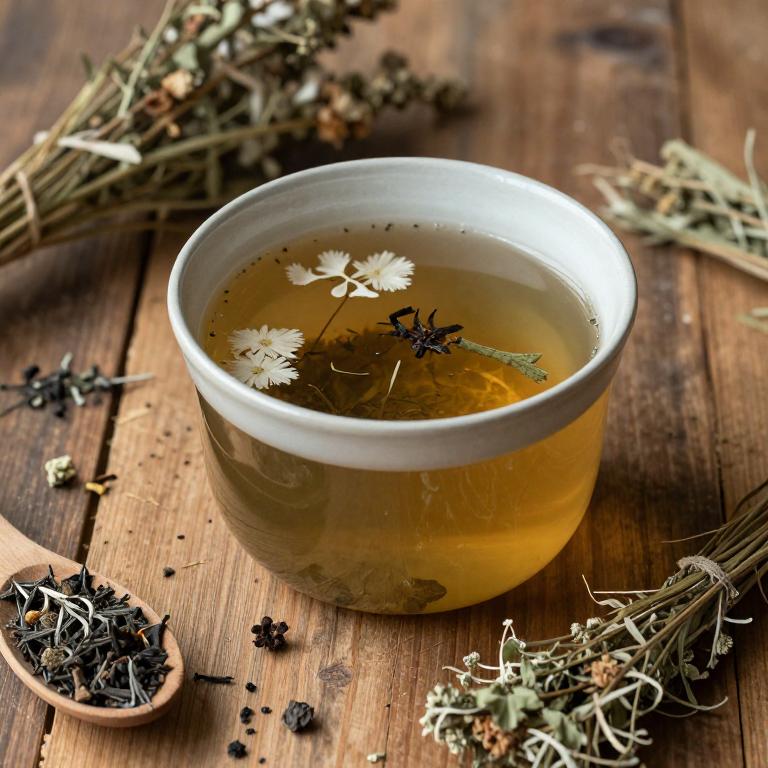
Arnica montana herbal decoctions are used to treat various inflammatory and painful conditions, particularly those affecting the muscles, joints, and skin.
They are commonly employed in topical applications to reduce bruising, swelling, and pain associated with injuries or sports-related trauma. The active compounds in arnica, such as helenalin and other sesquiterpene lactones, are believed to have anti-inflammatory and analgesic properties that contribute to its effectiveness. Due to its potent nature, arnica montana is typically not recommended for internal use and is often applied in the form of creams, gels, or tinctures.
Its use is also supported by traditional herbal medicine and some modern complementary therapies for managing pain and inflammation.
74. White cedar (Thuja occidentalis)
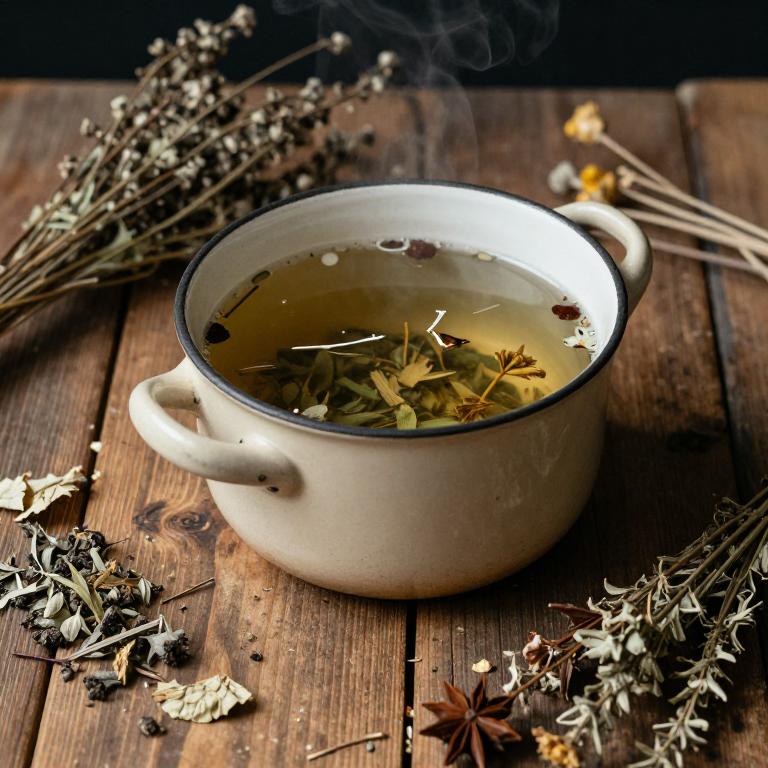
Thuja occidentalis herbal decoctions are used to support immune system function and treat respiratory infections due to their antimicrobial and anti-inflammatory properties.
These decoctions have been traditionally employed to alleviate symptoms of colds, flu, and bronchitis by reducing mucus production and soothing irritated airways. They are also valued for their ability to promote skin health, particularly in the treatment of warts and minor skin infections. The active compounds in thuja, such as alpha-pinene and thujaquin, contribute to its therapeutic effects by enhancing the body's natural defenses.
As a result, thuja occidentalis decoctions remain a popular remedy in herbal medicine for their versatile and potentially beneficial applications.
75. Goatweed (Eclipta prostrata)
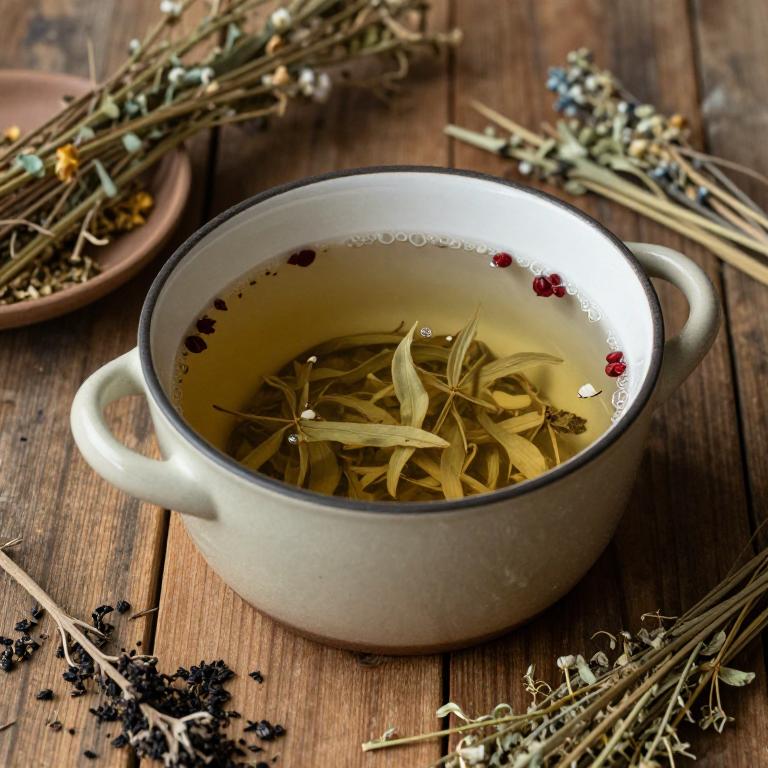
Eclipta prostrata herbal decoctions are used to promote hair growth and enhance scalp health due to their rich content of antioxidants and bioactive compounds.
These decoctions are traditionally employed in Ayurvedic medicine to treat baldness and thinning hair by stimulating the hair follicles and improving blood circulation to the scalp. The presence of compounds like wedelolactone and its derivatives is believed to contribute to the rejuvenation of hair roots and the prevention of premature graying. Additionally, the decoctions may support overall skin health and reduce inflammation, making them beneficial for various dermatological conditions.
Their effectiveness and traditional use have led to increasing interest in their potential for modern herbal and cosmetic applications.
76. Common plantain (Plantago major)
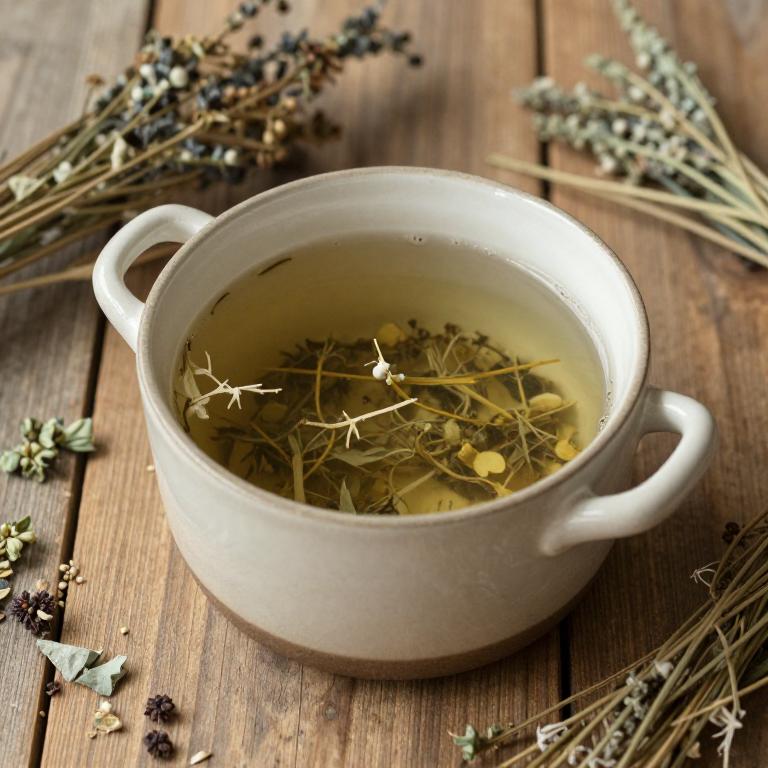
Plantago major herbal decoctions are used to support respiratory health by reducing inflammation and soothing irritated airways.
They are commonly employed in traditional medicine to alleviate symptoms of coughs, bronchitis, and asthma due to their expectorant and anti-inflammatory properties. The decoctions also aid in digestive health by promoting the production of digestive enzymes and easing gastrointestinal discomfort. Additionally, they are valued for their ability to promote wound healing and reduce swelling, making them useful in treating minor injuries and skin conditions.
These benefits stem from the presence of bioactive compounds such as aucubin and allantoin, which contribute to the plant's therapeutic effects.
77. Tulsi (Ocimum sanctum)
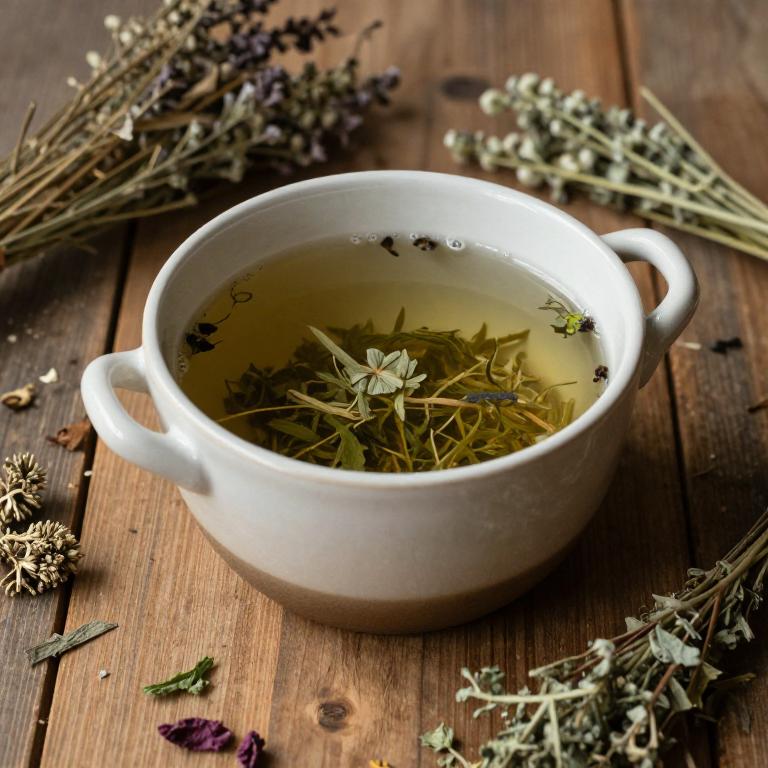
Ocimum sanctum herbal decoctions are used to support overall health and wellness due to their rich content of antioxidants, anti-inflammatory compounds, and essential oils.
They are commonly employed to alleviate symptoms of respiratory infections, such as colds and coughs, by promoting expectoration and reducing inflammation in the airways. Additionally, these decoctions are valued for their ability to enhance mental clarity and reduce stress, making them popular in traditional Ayurvedic practices. The presence of compounds like eugenol and rosmarinic acid contributes to their antimicrobial and immunomodulatory effects.
Overall, ocimum sanctum decoctions are favored for their versatility in addressing both physical and emotional well-being.
78. St. john's wort (Agrimonia eupatoria)
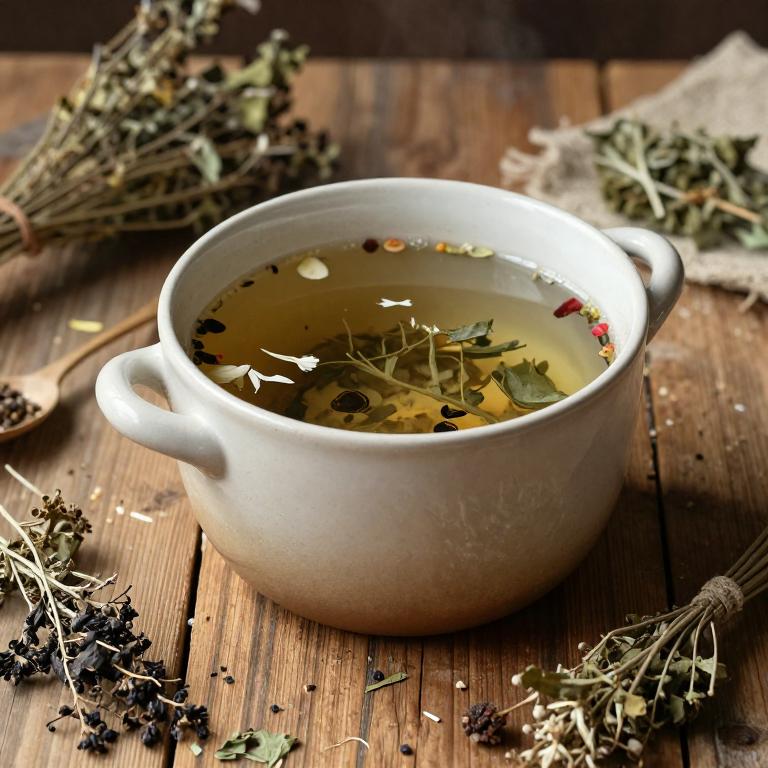
Agrimonia eupatoria herbal decoctions are used to support digestive health by soothing the gastrointestinal tract and reducing inflammation.
They are particularly effective in treating conditions such as gastritis, ulcers, and irritable bowel syndrome due to their high content of tannins and flavonoids, which have astringent and anti-inflammatory properties. These decoctions also help in managing symptoms of diarrhea and hemorrhoids by promoting tissue healing and reducing bleeding. Additionally, agrimonia eupatoria is valued for its ability to calm the nervous system, making it useful in alleviating stress-related digestive issues.
Overall, its combination of healing and protective qualities makes it a versatile remedy in traditional and modern herbal medicine.
79. Buckwheat (Plantago ovata)
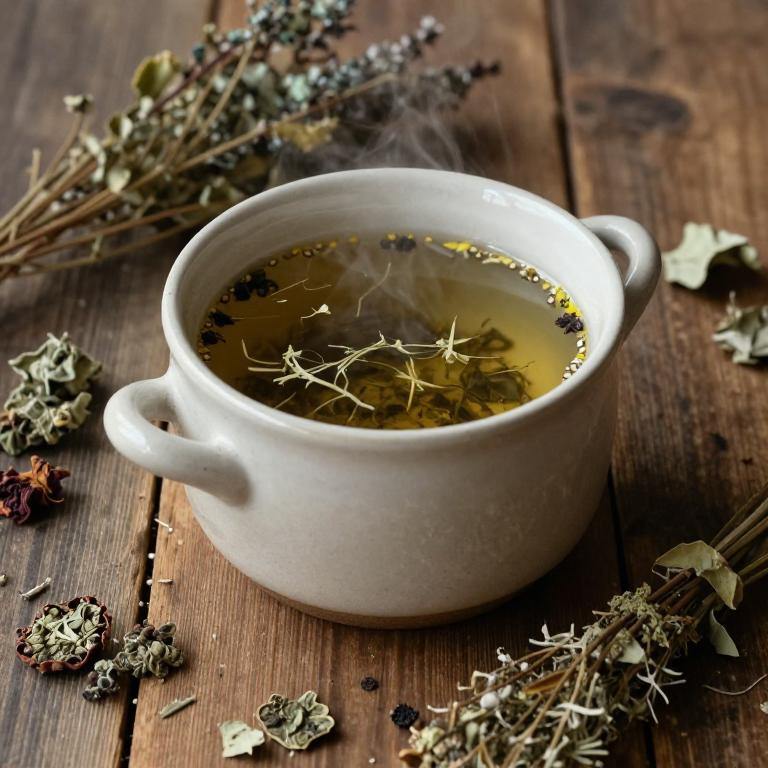
Plantago ovata herbal decoctions are used to support digestive health by promoting regular bowel movements and relieving constipation due to their high mucilage content, which absorbs water and softens stool.
They are also valued for their ability to reduce inflammation in the gastrointestinal tract, making them beneficial for individuals with conditions like irritable bowel syndrome or inflammatory bowel disease. Additionally, these decoctions may help in detoxifying the body by aiding in the elimination of toxins through the digestive system. The mild and soothing nature of plantago ovata makes it suitable for long-term use without significant side effects.
Overall, their natural properties make plantago ovata decoctions a popular choice in traditional medicine for improving digestive wellness.
80. Indian frankincense (Boswellia serrata)
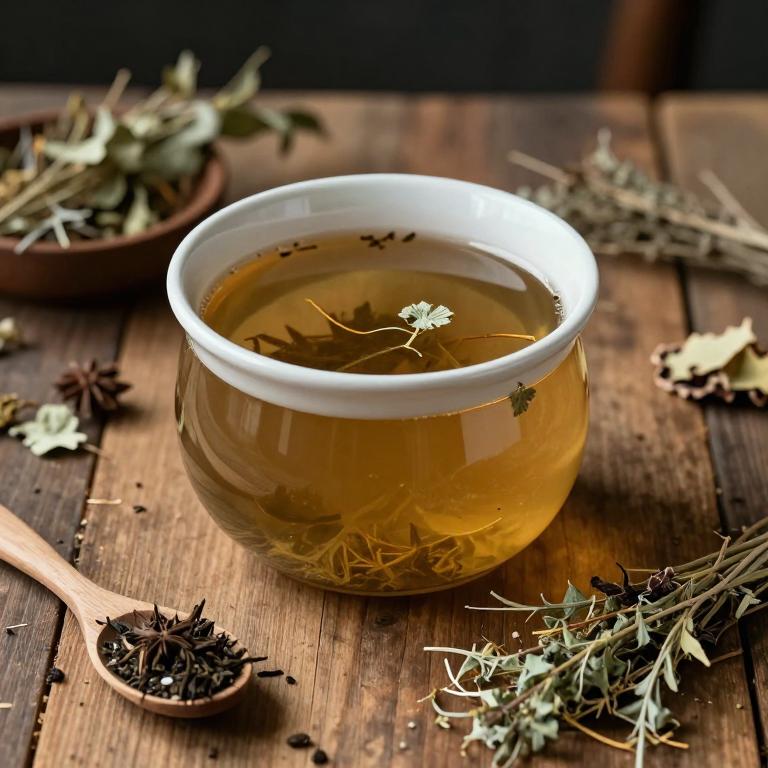
Boswellia serrata herbal decoctions are used to reduce inflammation and relieve pain, particularly in conditions such as osteoarthritis and rheumatoid arthritis.
The active compounds in boswellia, known as boswellic acids, inhibit the production of inflammatory enzymes, thereby decreasing swelling and discomfort. These decoctions are also valued for their potential to support respiratory health by alleviating symptoms of asthma and bronchitis. Due to their natural composition and fewer side effects compared to synthetic medications, boswellia serrata decoctions are increasingly sought after as a complementary therapy.
Their broad anti-inflammatory properties make them a valuable addition to holistic and integrative medical approaches.
81. Lemon grass (Cymbopogon martini)

Cymbopogon martini herbal decoctions are used to promote relaxation and reduce stress due to their calming properties.
These decoctions are often incorporated into aromatherapy practices to enhance mood and alleviate anxiety. They are also valued for their potential to support respiratory health by easing symptoms of bronchitis and coughs. The presence of essential oils like citral and geraniol contributes to their therapeutic effects.
Overall, cymbopogon martini decoctions are favored for their natural ability to soothe both the mind and body.
82. Geranium (Pelargonium graveolens)
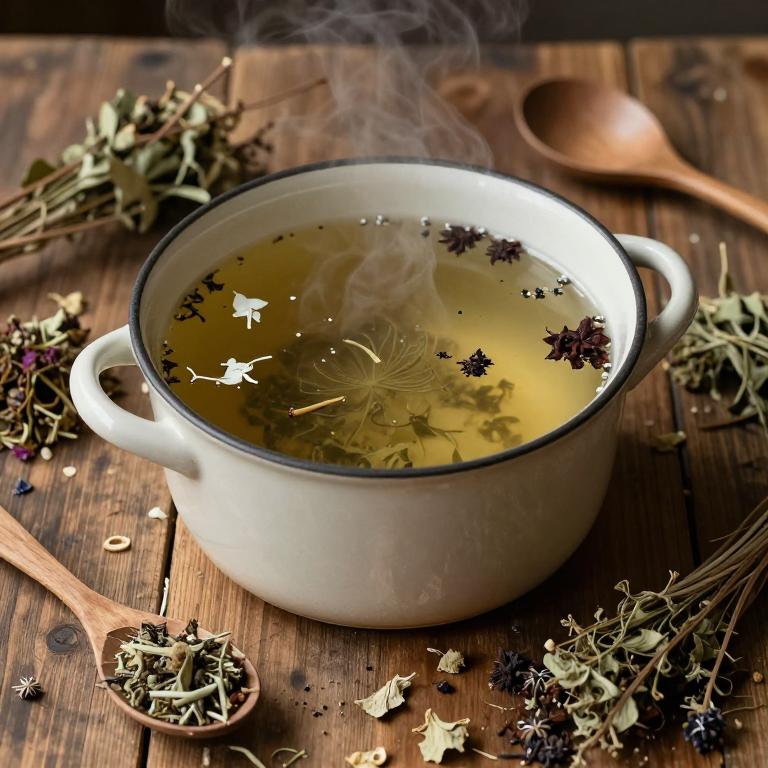
Pelargonium graveolens herbal decoctions are used to treat various respiratory and skin conditions due to their potent anti-inflammatory and antimicrobial properties.
These decoctions are commonly employed to alleviate symptoms of coughs, colds, and bronchitis by reducing inflammation in the airways and fighting off infections. The essential oils extracted from the plant, particularly citronellol and geraniol, contribute to its effectiveness in soothing irritated tissues and promoting healing. Additionally, pelargonium graveolens decoctions are used topically to address skin infections, eczema, and acne because of their ability to disinfect and soothe inflamed skin.
Their versatility in both internal and external applications makes them a valuable remedy in traditional and complementary medicine practices.
83. Poppy (Papaver rhoeas)

Papaver rhoeas herbal decoctions are used to support digestive health by promoting the secretion of digestive enzymes and reducing bloating.
They are also valued for their calming effects on the nervous system, helping to alleviate stress and anxiety. The decoctions are known to have mild sedative properties, making them useful in treating insomnia and promoting relaxation. Additionally, they are used to soothe respiratory conditions such as coughs and bronchitis due to their expectorant qualities.
These benefits are attributed to the presence of alkaloids and flavonoids, which have anti-inflammatory and antioxidant properties.
84. Oat (Avena sativa)
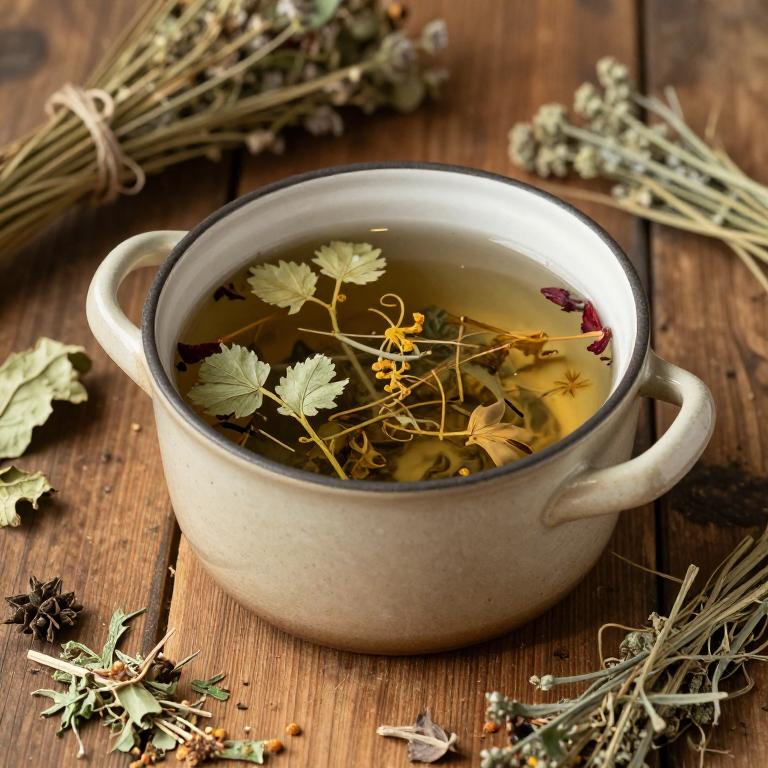
Avena sativa herbal decoctions are used to promote relaxation and improve sleep quality due to their calming properties.
These decoctions contain compounds such as saponins and phenolic acids, which have been shown to reduce anxiety and stress levels. They are often consumed as a natural remedy for insomnia and mood disorders, providing a gentle alternative to pharmaceutical sedatives. The mild diuretic effect of avena sativa also helps in reducing water retention and supporting kidney function.
Overall, avena sativa herbal decoctions are valued for their holistic benefits in enhancing well-being and supporting emotional health.
85. Oregano (Origanum vulgare)
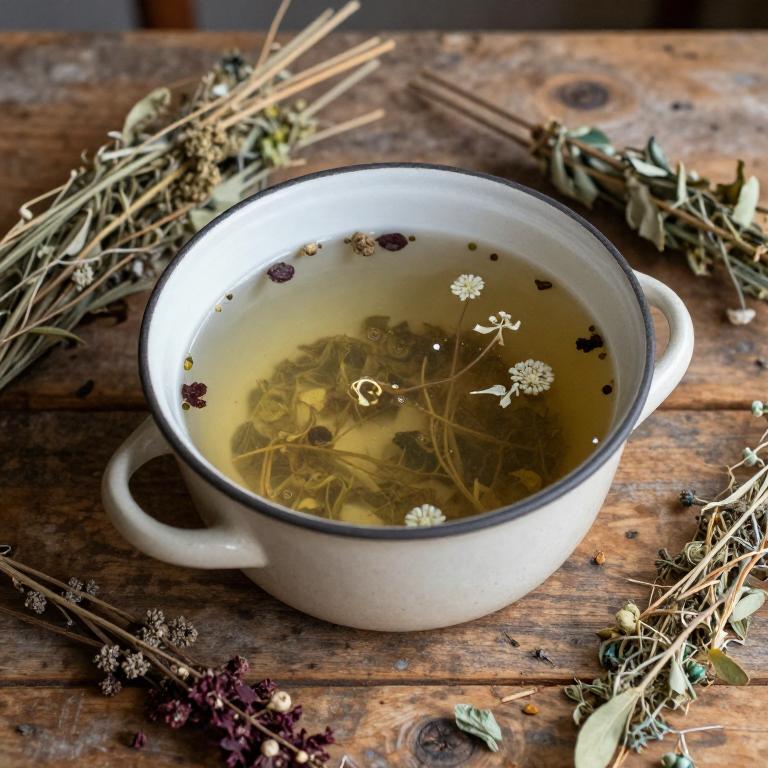
Origanum vulgare herbal decoctions are used to support digestive health by stimulating the production of digestive enzymes and reducing gastrointestinal discomfort.
They are also valued for their antimicrobial properties, which can help combat bacterial and fungal infections. These decoctions are commonly used to alleviate symptoms of respiratory conditions such as coughs and bronchitis due to their expectorant and decongestant effects. Additionally, they are known to have anti-inflammatory properties that may aid in reducing inflammation in the body.
The use of origanum vulgare decoctions is often supported by its rich content of antioxidants and essential oils, which contribute to its wide range of therapeutic benefits.
86. Centella (Centella asiatica)
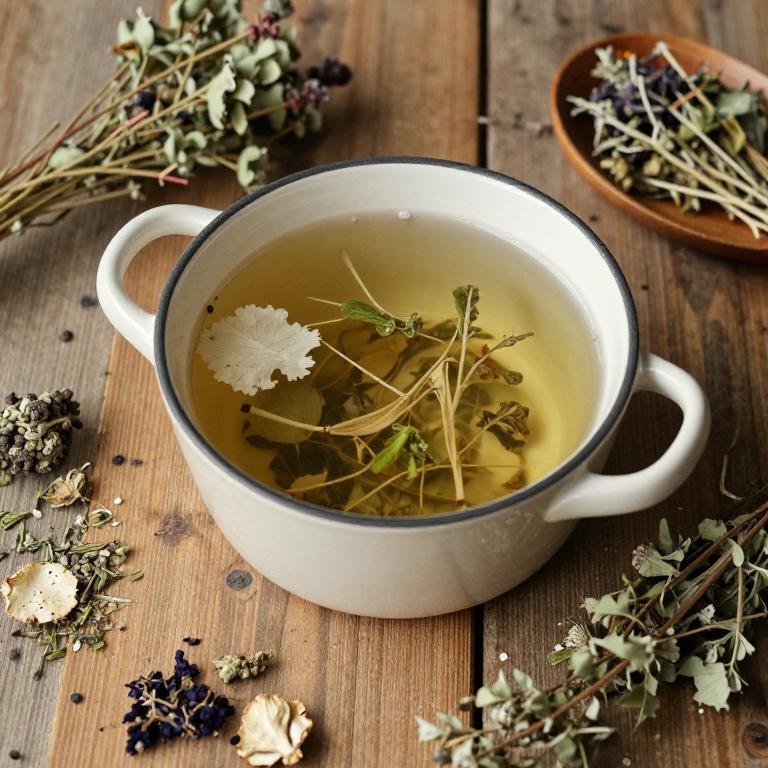
Centella asiatica herbal decoctions are used to promote wound healing and enhance skin regeneration due to their rich content of triterpenoids and other bioactive compounds.
These decoctions are commonly applied topically to treat ulcers, cuts, and burns by stimulating collagen production and improving tissue repair. In traditional medicine, they are also valued for their ability to reduce inflammation and improve circulation, making them beneficial for conditions like varicose veins and eczema. Additionally, centella asiatica decoctions are used to support cognitive function and reduce stress, as they contain compounds that may enhance mental clarity and mood.
Their versatility and natural efficacy make them a popular choice in both traditional and modern therapeutic practices.
87. Tamarind (Tamarindus indica)
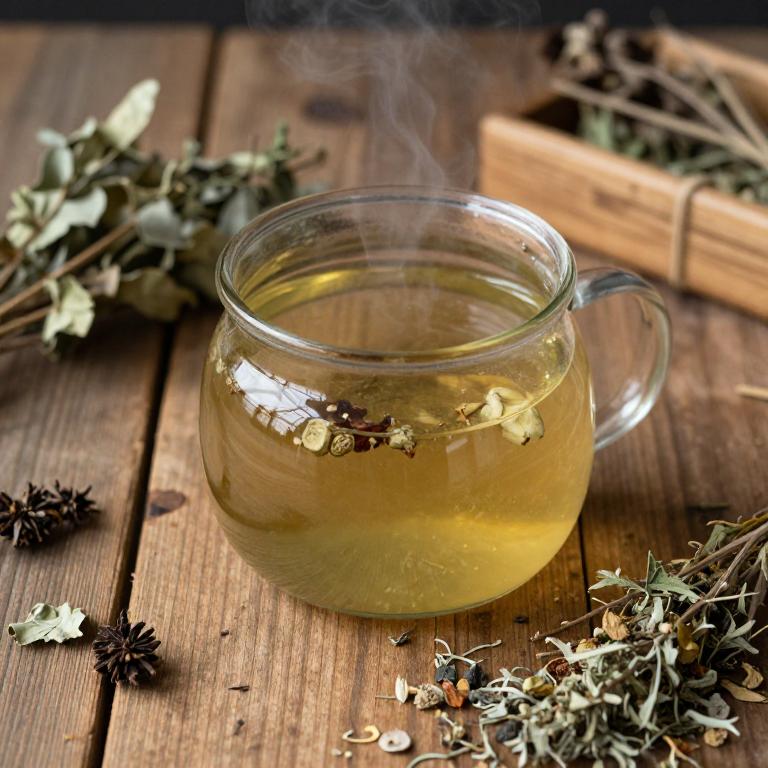
Tamarindus indica herbal decoctions are used to support digestive health by stimulating the production of digestive enzymes and alleviating symptoms of indigestion and bloating.
They are also employed in traditional medicine to reduce fever and treat respiratory conditions such as coughs and colds due to their antipyretic and expectorant properties. The decoctions may help in managing hypertension because they contain compounds that can lower blood pressure naturally. Additionally, they are valued for their antioxidant properties, which contribute to overall immune support and may aid in the prevention of chronic diseases.
These uses are rooted in both historical practices and modern scientific research that highlights the diverse therapeutic benefits of tamarind.
88. Indian barberry (Berberis aristata)
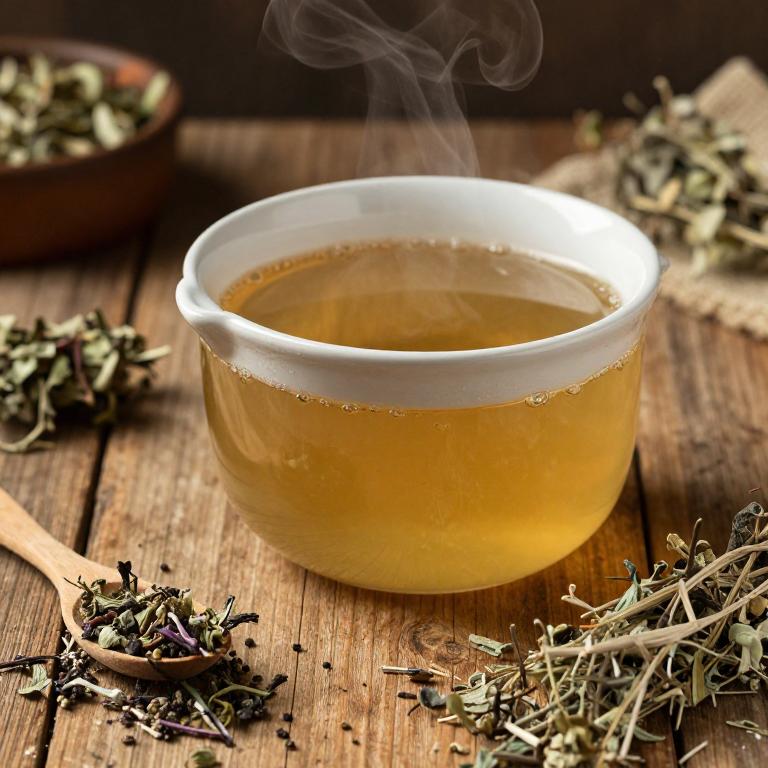
Berberis aristata herbal decoctions are used to treat a variety of bacterial and fungal infections due to their potent antimicrobial properties.
The active compound berberine, found in the decoctions, has been shown to inhibit the growth of harmful pathogens such as Escherichia coli and Staphylococcus aureus. They are also commonly used in traditional medicine to support digestive health by alleviating symptoms of diarrhea and inflammatory bowel conditions. Additionally, berberis aristata decoctions may help in managing blood sugar levels, making them beneficial for individuals with diabetes.
These natural remedies are valued for their effectiveness, affordability, and minimal side effects compared to synthetic antibiotics.
89. Pogostemon (Pogostemon cablin)
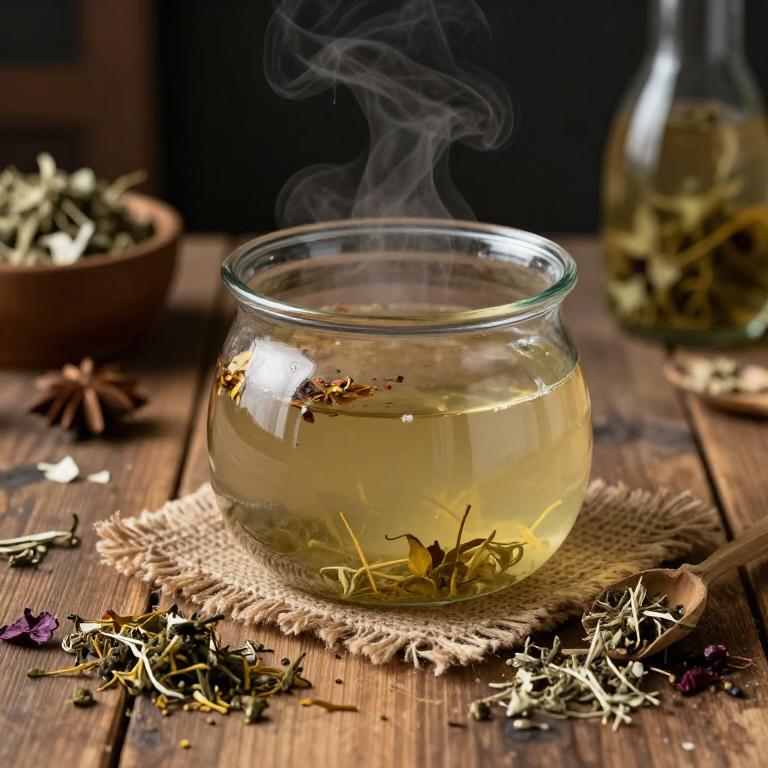
Pogostemon cablin herbal decoctions are used to promote respiratory health by alleviating symptoms of coughs, colds, and asthma due to their expectorant and anti-inflammatory properties.
These decoctions also support digestive health by stimulating appetite and aiding in the digestion of food, thanks to their carminative effects. Additionally, they are valued for their calming effects on the nervous system, helping to reduce stress and improve sleep quality. The presence of essential oils and bioactive compounds in pogostemon cablin contributes to its effectiveness in treating various ailments.
Overall, the versatility and therapeutic benefits of these decoctions make them a popular choice in traditional medicine for enhancing overall well-being.
90. Smooth sumac (Rhus typhina)

Rhus typhina herbal decoctions are used to alleviate symptoms of arthritis and joint inflammation due to their anti-inflammatory and analgesic properties.
These decoctions are also employed in traditional medicine to treat skin conditions such as eczema and psoriasis because of their astringent and soothing effects. The plant's ability to reduce swelling and pain makes it a valuable remedy for musculoskeletal disorders. Additionally, Rhus typhina decoctions are sometimes used to address respiratory issues like coughs and bronchitis, thanks to their expectorant qualities.
Overall, the versatility of Rhus typhina decoctions stems from its rich composition of bioactive compounds that support various therapeutic applications.
91. Blackthorn (Prunus spinosa)
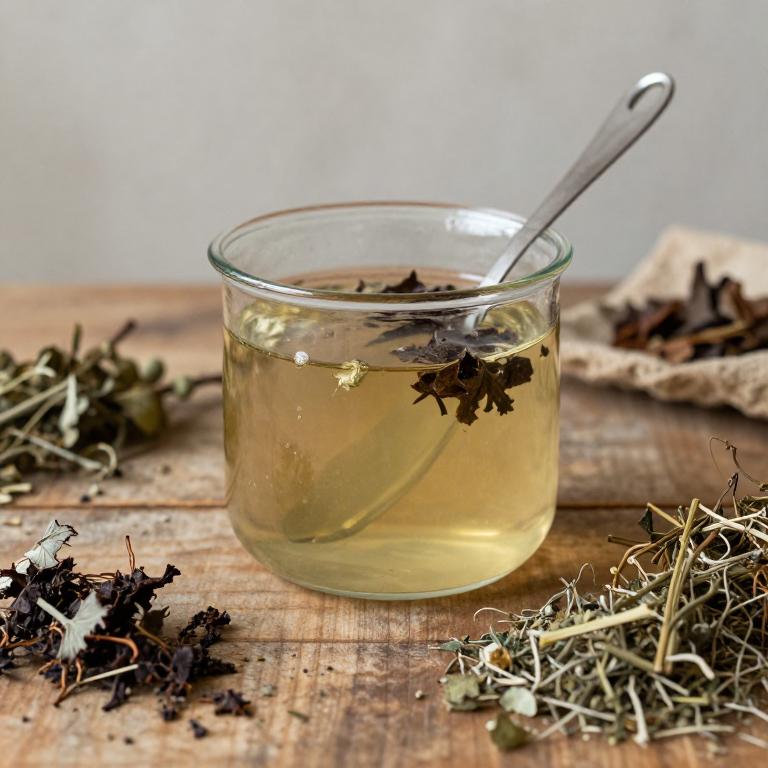
Prunus spinosa herbal decoctions are used to support digestive health by promoting the secretion of digestive enzymes and alleviating symptoms of indigestion.
These decoctions are also valued for their mild laxative properties, which can help relieve constipation without causing significant dehydration. The presence of bioactive compounds such as tannins and flavonoids contributes to their anti-inflammatory and antioxidant effects, making them beneficial for reducing inflammation in the gastrointestinal tract. Additionally, prunus spinosa decoctions are traditionally used to aid in the management of mild respiratory conditions due to their expectorant properties.
Their versatility and gentle nature make them a popular choice in herbal medicine for a range of health concerns.
92. Coltsfoot (Tussilago farfara)

Tussilago farfara herbal decoctions are used to alleviate respiratory conditions such as coughs, bronchitis, and asthma due to their expectorant and anti-inflammatory properties.
These decoctions help loosen mucus in the airways, making it easier to expel and reducing congestion. The plant, commonly known as coltsfoot, contains compounds like mucilage and flavonoids that soothe irritated respiratory tissues. Its use dates back to traditional medicine systems, where it was valued for its ability to support lung health.
Because of its natural soothing effects, tussilago farfara is often recommended as a complementary therapy for chronic or acute respiratory ailments.
93. Bacopa (Bacopa monnieri)
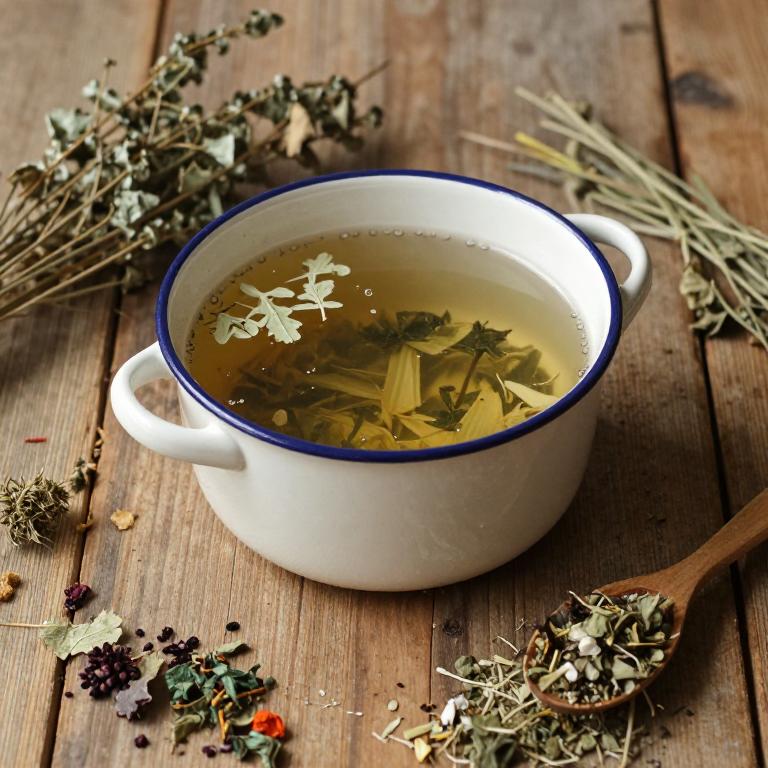
Bacopa monnieri herbal decoctions are used to enhance cognitive function and memory retention, particularly in older adults and students.
These decoctions contain alkaloids and bacosides that support nerve cell communication and protect against oxidative stress. They are also believed to reduce anxiety and improve mental clarity, making them popular in traditional medicine systems like Ayurveda. The calming effects of bacopa monnieri may help in managing stress-related disorders and promoting overall mental well-being.
Due to their neuroprotective properties, these decoctions are increasingly being studied for their potential in treating neurodegenerative diseases.
94. Sandalwood (Santalum album)
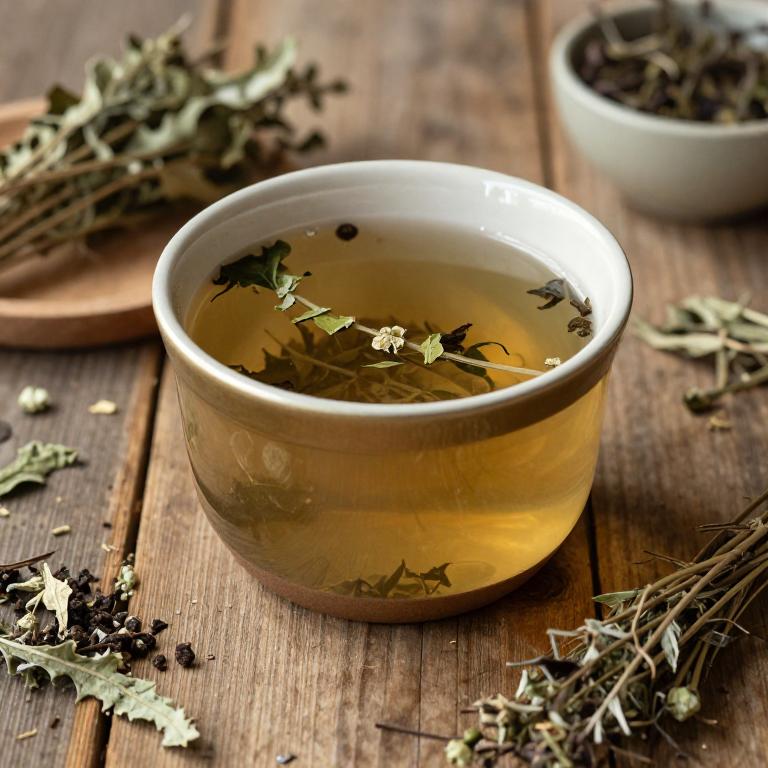
Santalum album herbal decoctions are used to promote relaxation and reduce stress by influencing the central nervous system.
They are traditionally employed in aromatherapy and massage therapies to enhance mood and alleviate anxiety. The sedative and calming properties of these decoctions make them beneficial for individuals suffering from insomnia or restlessness. Additionally, they are valued for their ability to support skin health due to their antimicrobial and soothing effects.
The holistic benefits of santalum album decoctions stem from their rich composition of essential oils and bioactive compounds that interact with both mental and physical well-being.
95. Nux vomica (Strychnos nux-vomica)
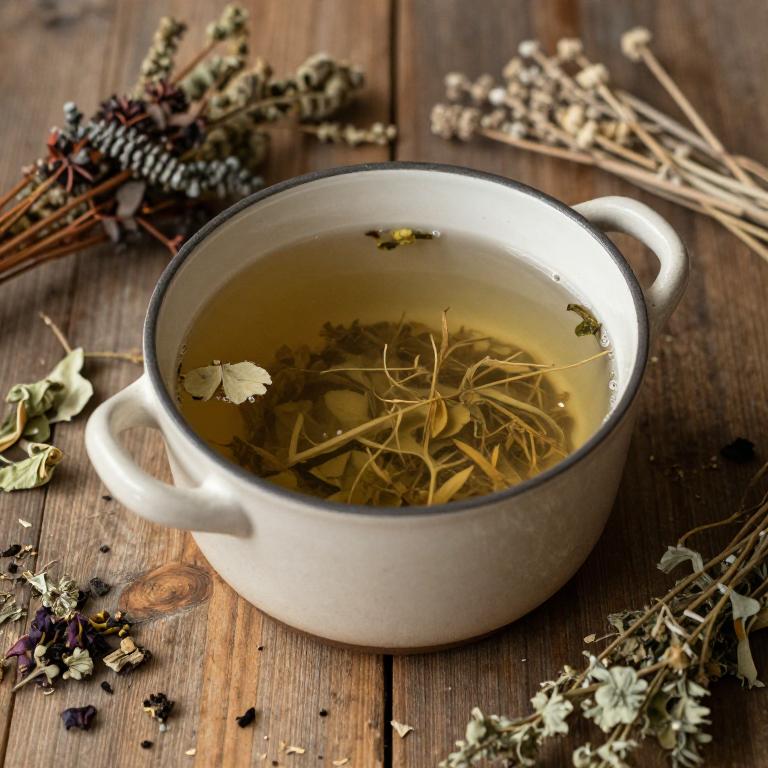
Strychnos nux-vomica herbal decoctions are used to treat a variety of ailments in traditional medicine, particularly in Chinese and Ayurvedic practices.
These decoctions are believed to have potent stimulant and neurotonic properties that can enhance vitality and improve circulation. They are often employed to address conditions such as fatigue, depression, and respiratory disorders due to their ability to invigorate the nervous system. However, their use is highly cautioned due to the toxic nature of the plant, which can cause severe side effects if not prepared and administered properly.
Despite the risks, some practitioners still use these decoctions under strict supervision for specific therapeutic purposes.
96. Hemp (Cannabis sativa)
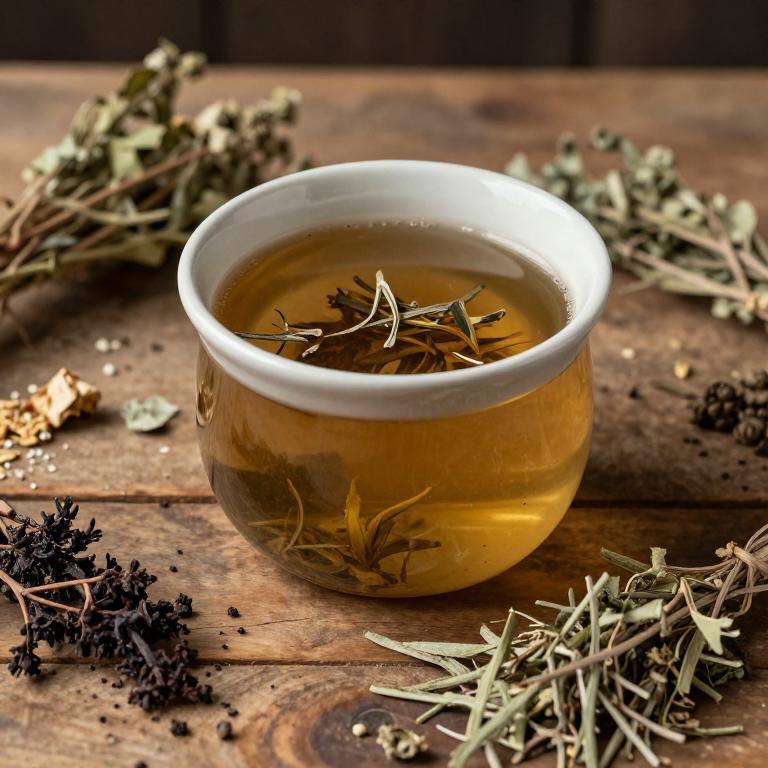
Cannabis sativa herbal decoctions are used to alleviate symptoms of various medical conditions due to their rich composition of cannabinoids and other bioactive compounds.
These decoctions are commonly employed in traditional medicine to reduce inflammation, relieve pain, and manage stress and anxiety. The therapeutic effects of cannabis sativa decoctions are attributed to the presence of cannabidiol (CBD) and tetrahydrocannabinol (THC), which interact with the body's endocannabinoid system. Additionally, these decoctions are used to support sleep regulation and stimulate appetite, making them beneficial for patients undergoing medical treatments.
Their versatility and natural origin make cannabis sativa herbal decoctions a valuable option in holistic and integrative healthcare approaches.
97. Poison ivy (Rhus toxicodendron)

Rhus toxicodendron herbal decoctions are used to treat skin conditions such as eczema, psoriasis, and contact dermatitis due to their anti-inflammatory and antipruritic properties.
These decoctions help alleviate symptoms like redness, itching, and inflammation by modulating the immune response and reducing histamine release. In traditional Chinese medicine, they are also employed to address joint pain and rheumatic conditions, owing to their ability to improve circulation and reduce swelling. The active compounds in Rhus toxicodendron, such as tannins and flavonoids, contribute to its therapeutic effects by providing astringent and soothing actions on the skin.
Overall, these decoctions are valued for their efficacy in managing both dermatological and inflammatory disorders.
98. Barberry (Berberis vulgaris)

Berberis vulgaris herbal decoctions are used to treat a variety of gastrointestinal disorders due to their anti-inflammatory and antimicrobial properties.
These decoctions are commonly employed to alleviate symptoms of diarrhea, dysentery, and inflammatory bowel diseases because they help reduce intestinal inflammation and combat harmful pathogens. The active compound berberine in berberis vulgaris has been shown to support gut health by promoting the growth of beneficial bacteria while inhibiting the proliferation of harmful microorganisms. Additionally, these decoctions may help regulate digestive function and ease discomfort associated with indigestion and bloating.
Their traditional use in herbal medicine highlights their potential as a natural remedy for digestive ailments.
99. Pumpkin (Cucurbita pepo)
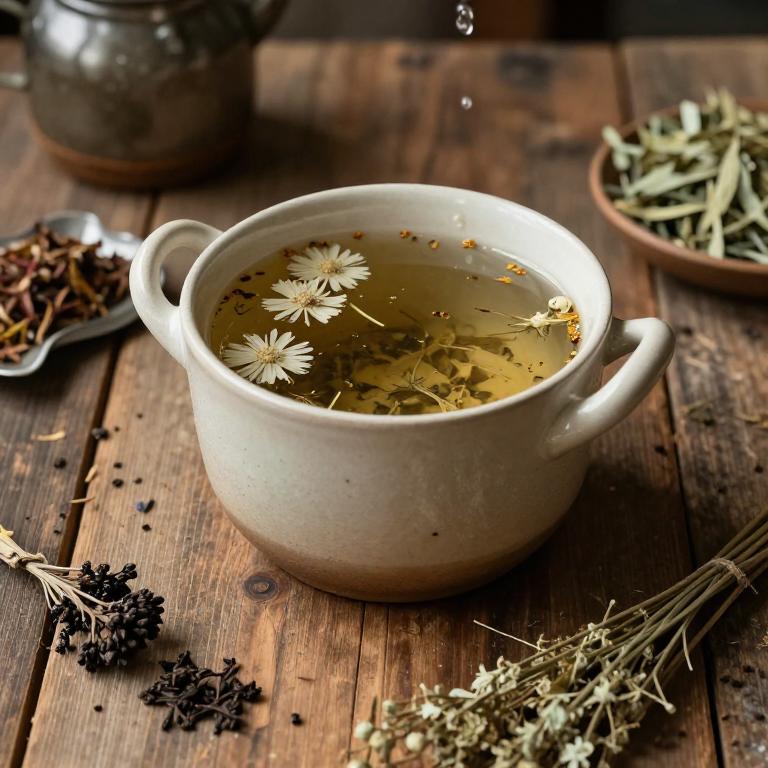
Cucurbita pepo herbal decoctions are used to support digestive health by promoting the secretion of digestive enzymes and reducing inflammation in the gastrointestinal tract.
These decoctions are also valued for their mild laxative properties, which can help alleviate constipation without causing harsh side effects. In traditional medicine, they are often employed to treat respiratory conditions such as coughs and bronchitis due to their expectorant qualities. The presence of bioactive compounds like cucurbitacins and antioxidants contributes to their therapeutic effects.
Overall, the versatility and gentle nature of cucurbita pepo decoctions make them a valuable remedy in both traditional and complementary healthcare practices.
100. Dandelion (Taraxacum officinale)
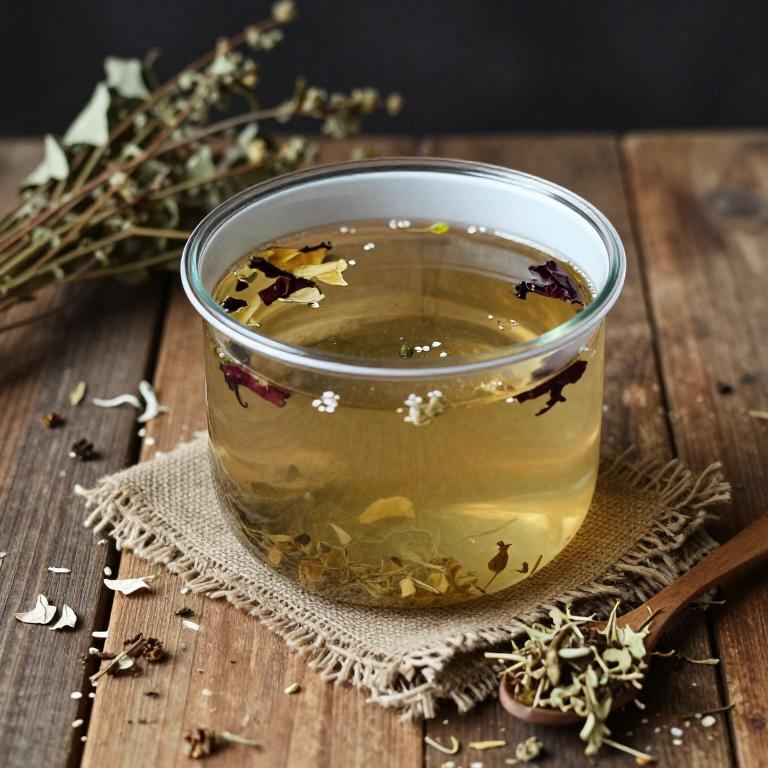
Taraxacum officinale herbal decoctions are used to support digestive health by stimulating the production of digestive enzymes and bile.
They are also valued for their diuretic properties, which can help in the elimination of toxins and excess fluids from the body. These decoctions are often employed in traditional medicine to alleviate symptoms of indigestion, bloating, and liver congestion. The presence of compounds like caffeic acid and inulin contributes to their anti-inflammatory and immune-boosting effects.
Due to these benefits, taraxacum officinale is a popular choice in herbal remedies for promoting overall wellness and supporting the body's natural detoxification processes.